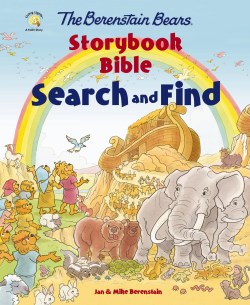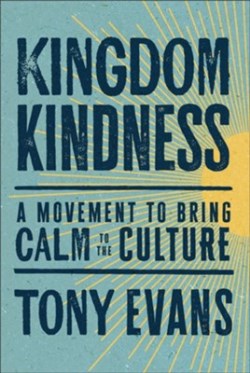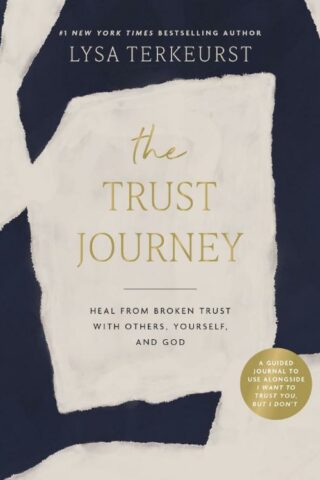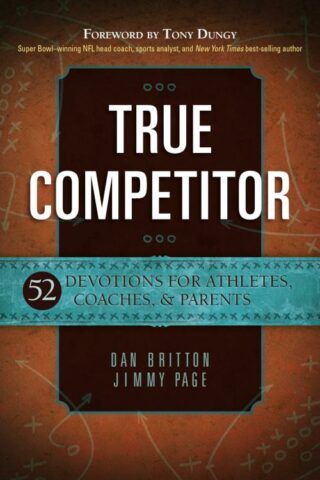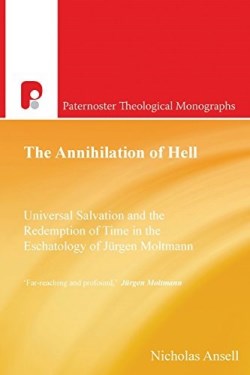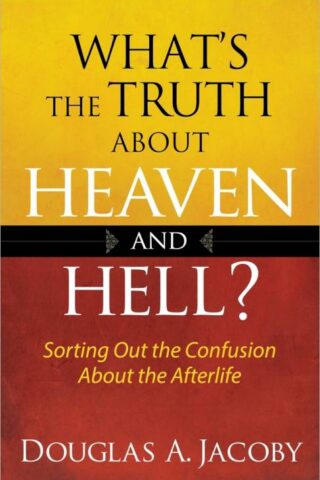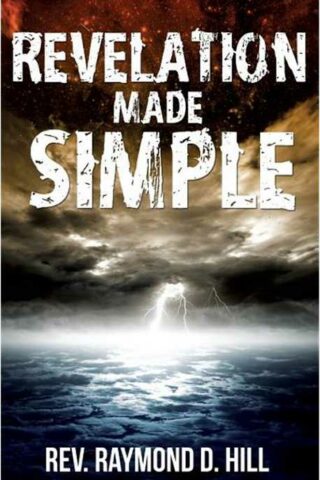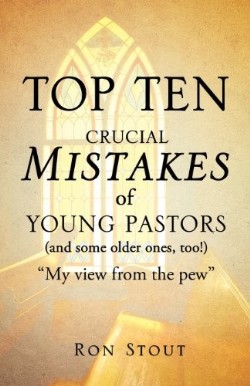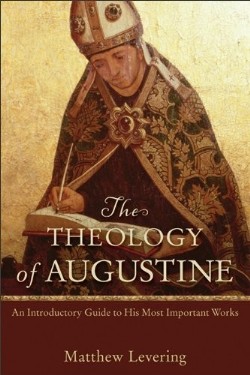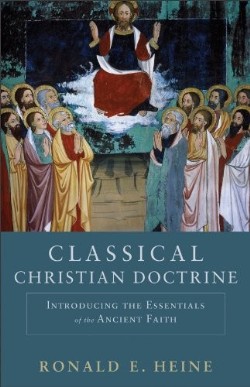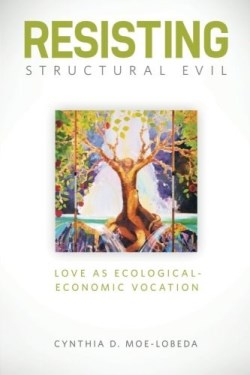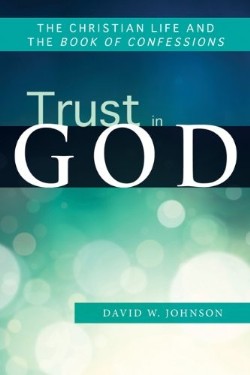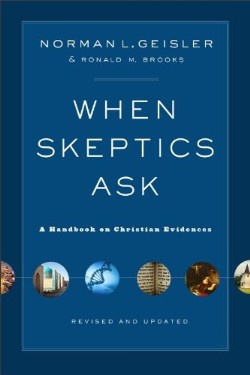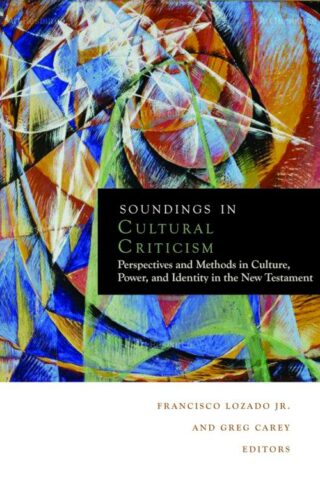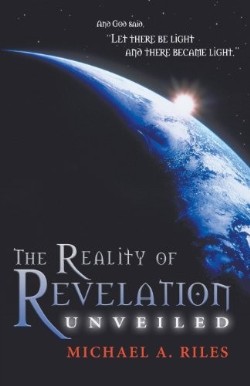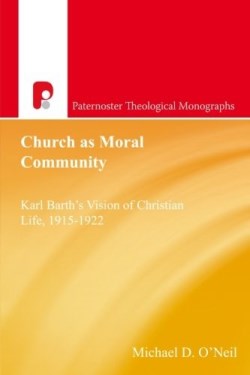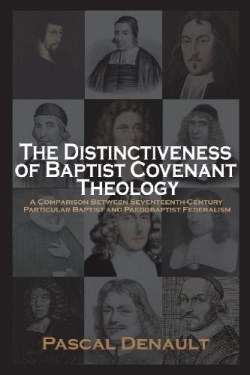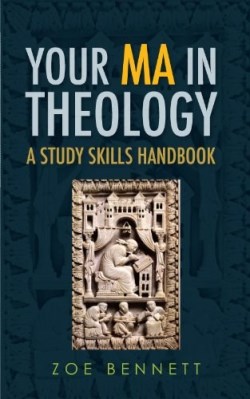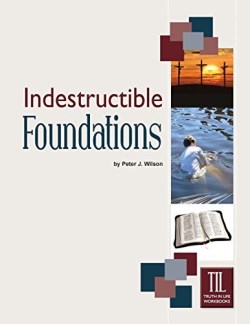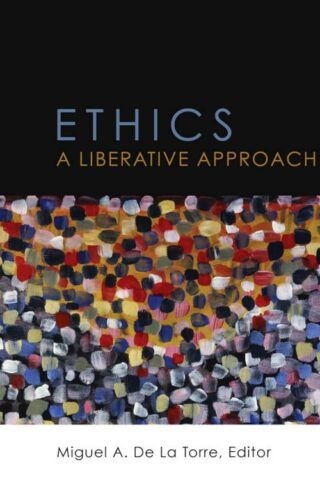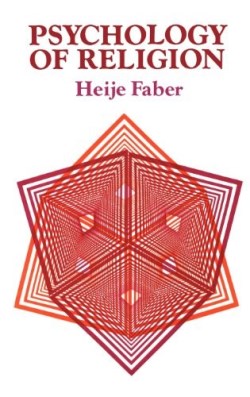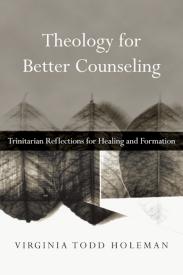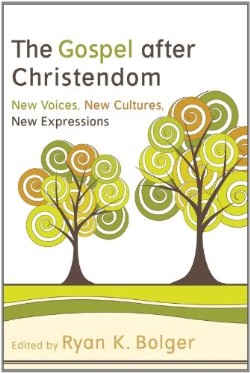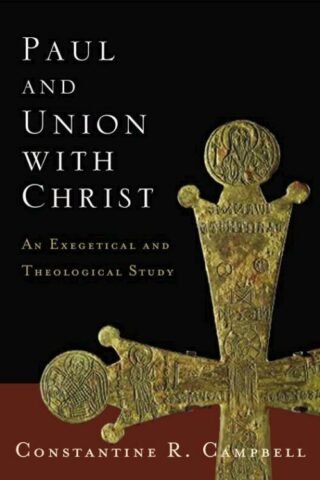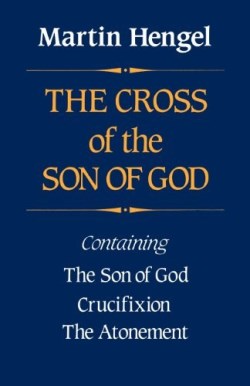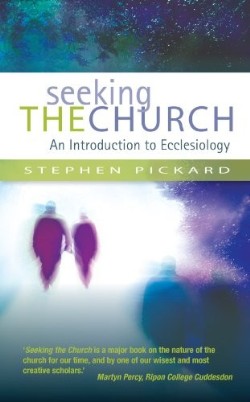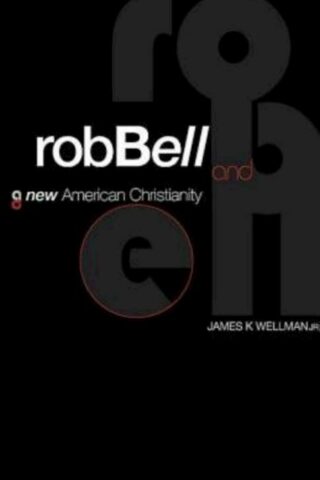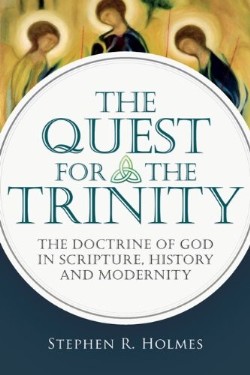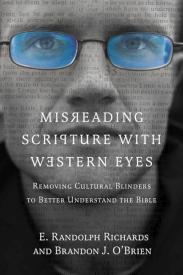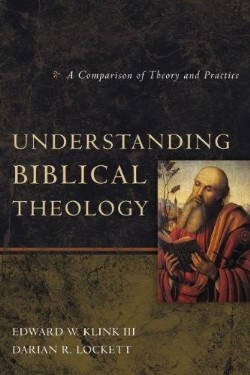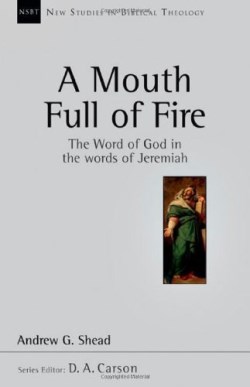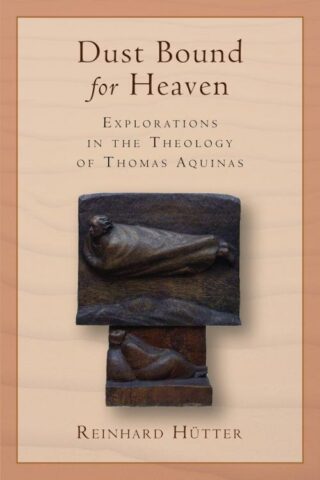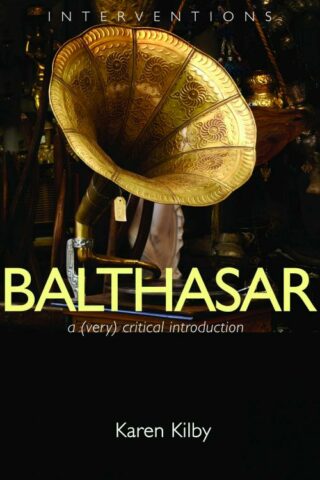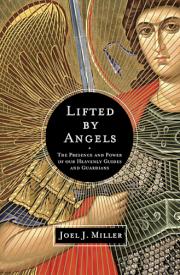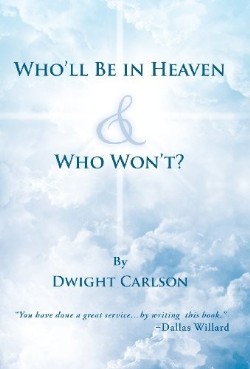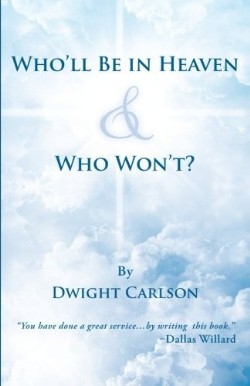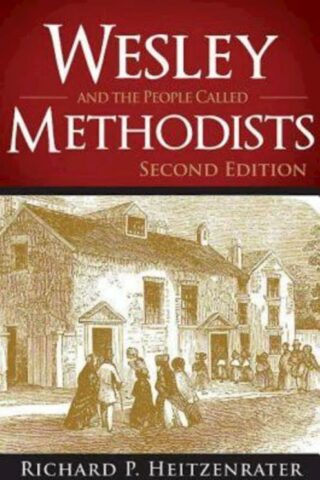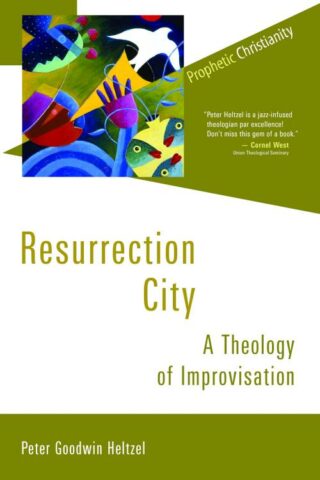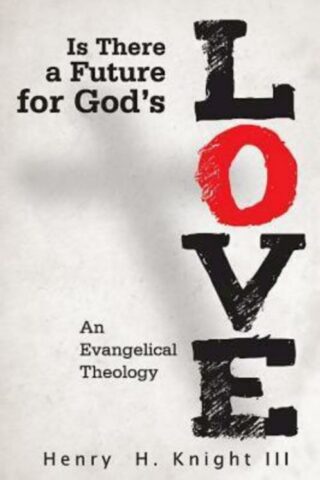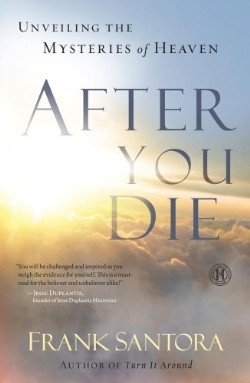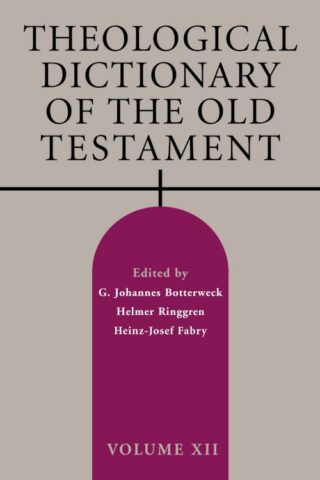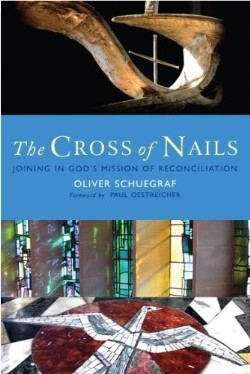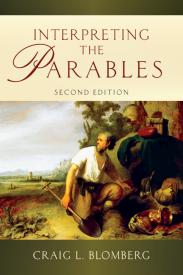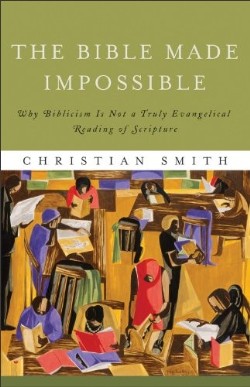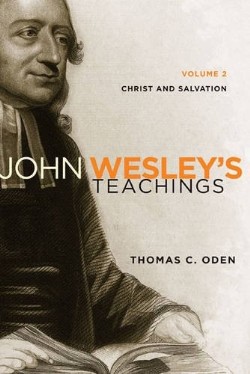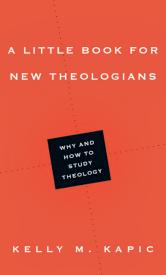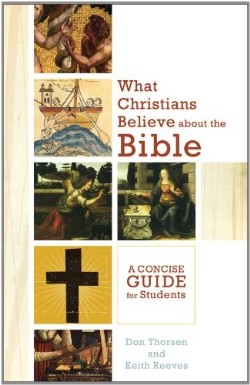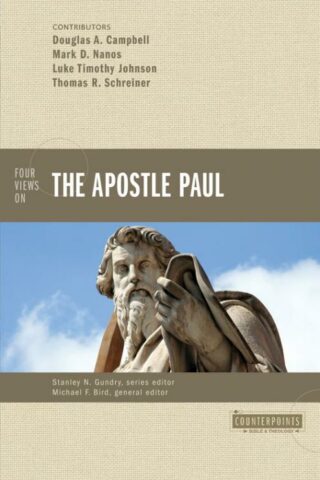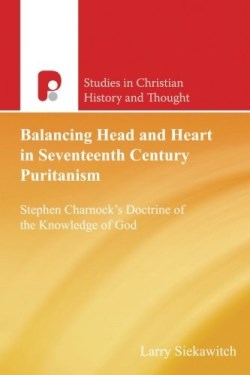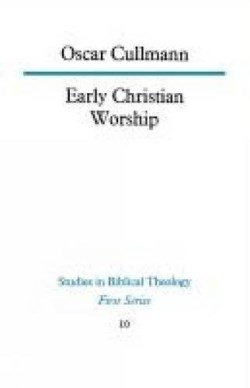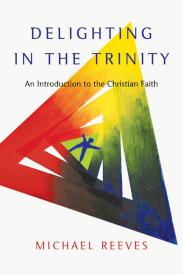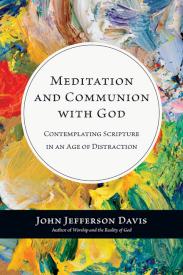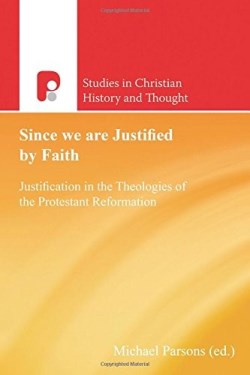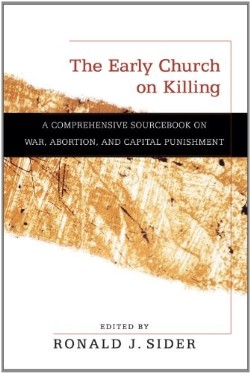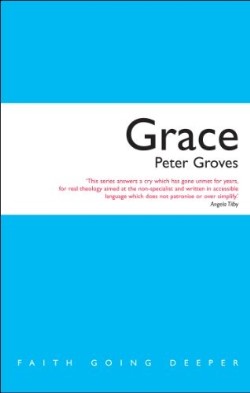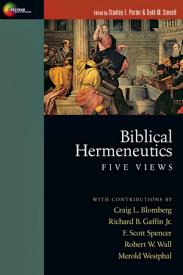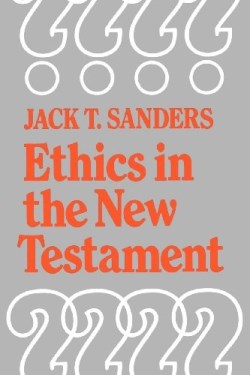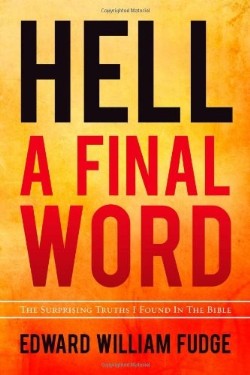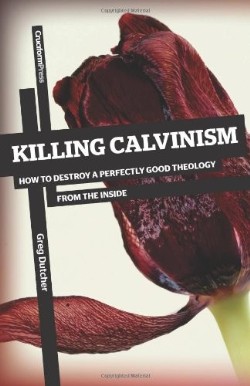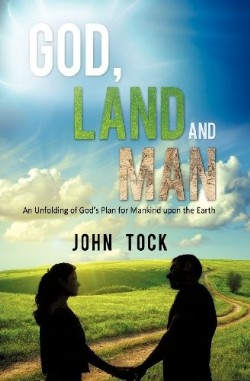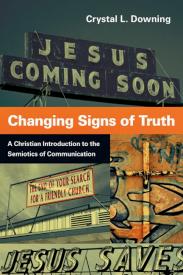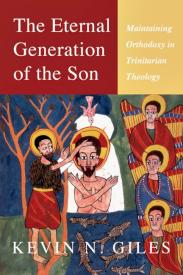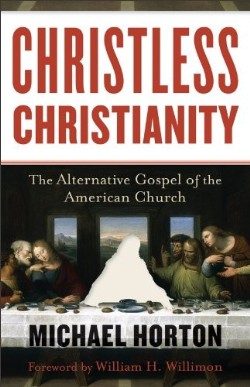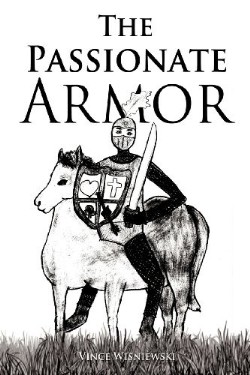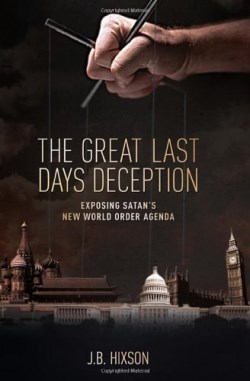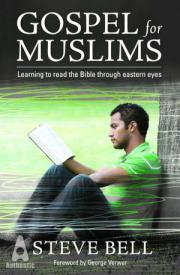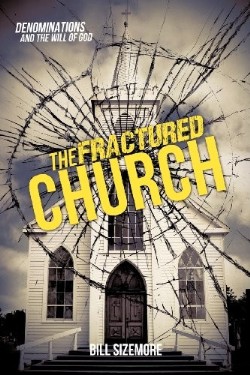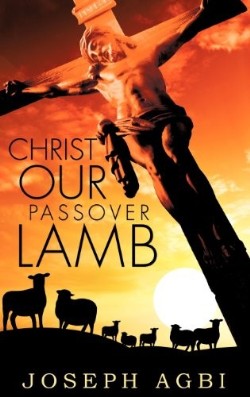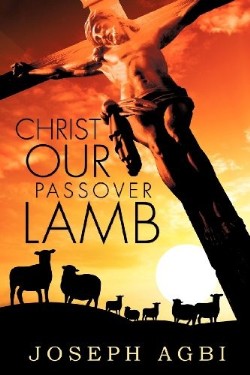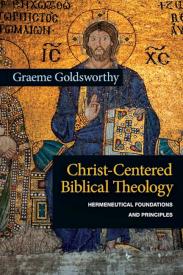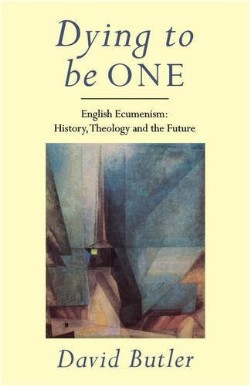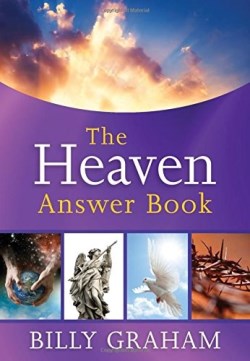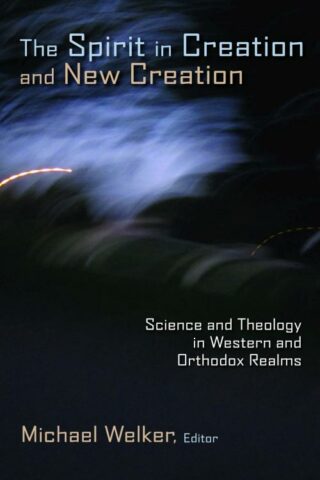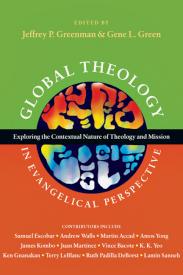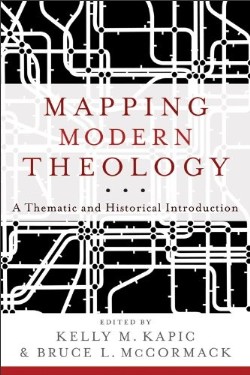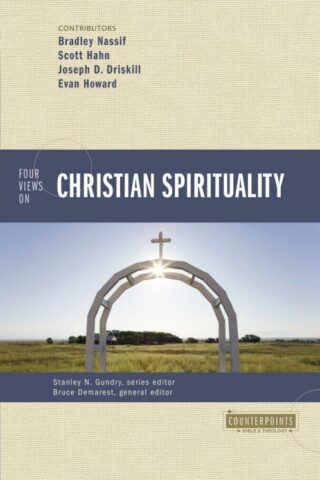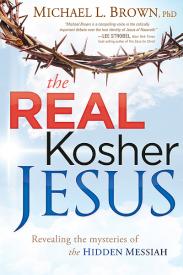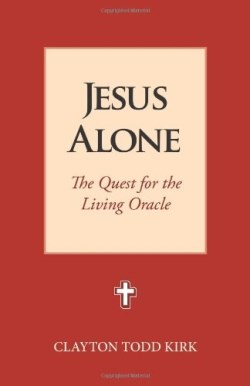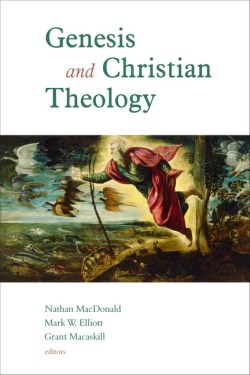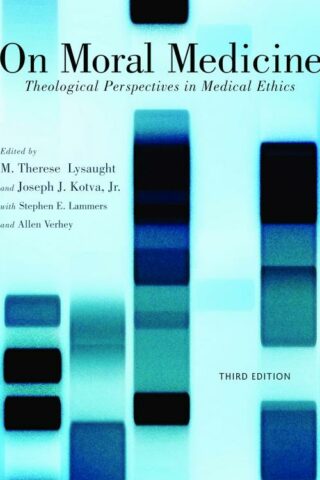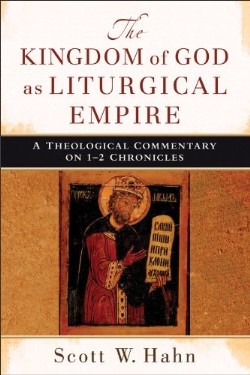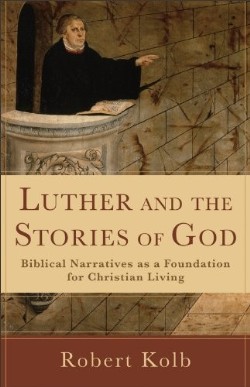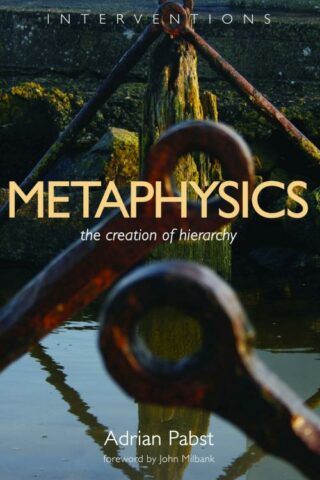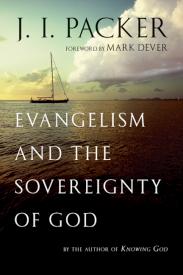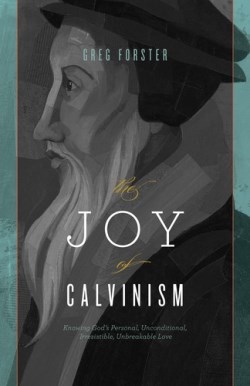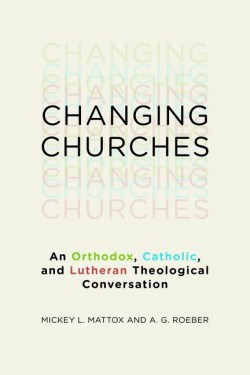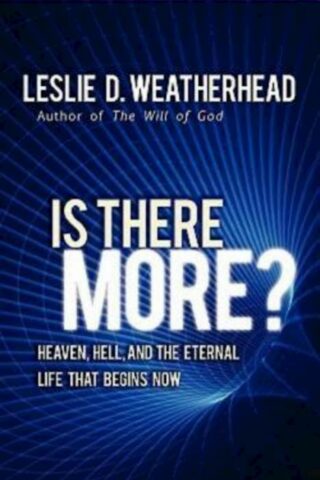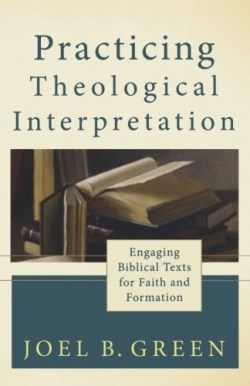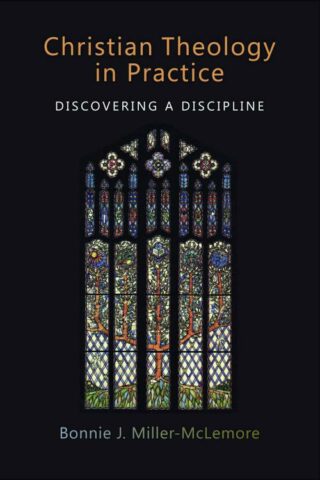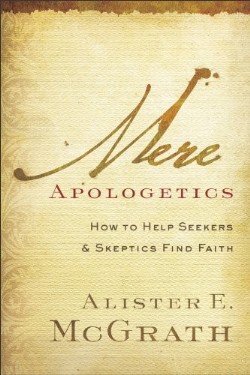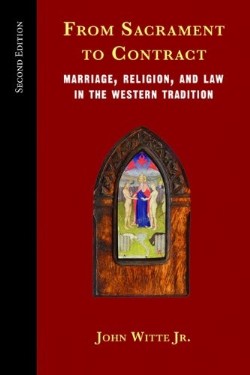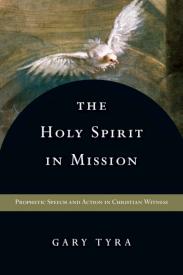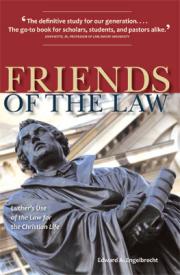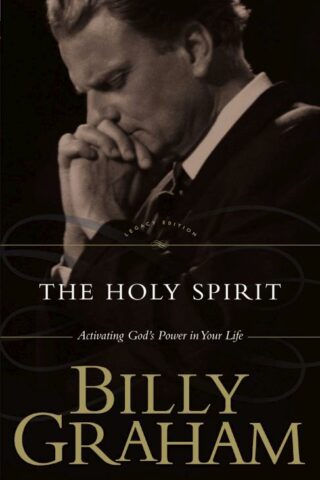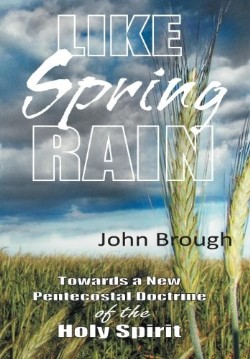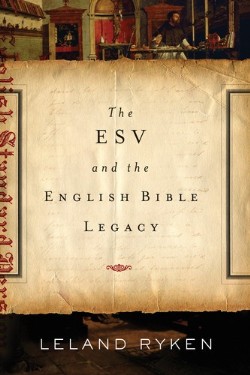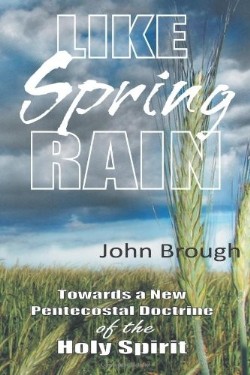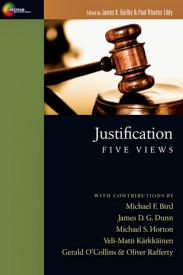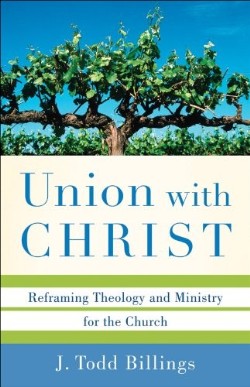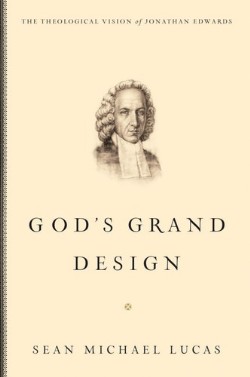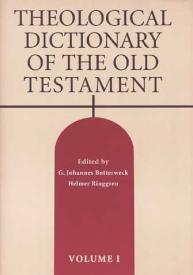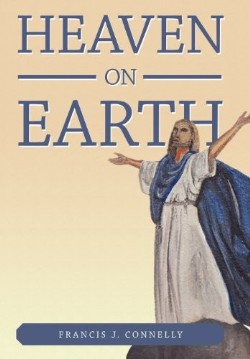Theology (Exegetical Historical Practical etc.)
Showing 801–900 of 2183 resultsSorted by latest
-
Annihilation Of Hell
$56.23For Jrgen Moltmann, Hell is the nemesis of Hope. The “annihilation of Hell” thus refers both to Hell’s annihilative power in history and to the overcoming of that power as envisioned by Moltmann’s distinctive theology of the cross in which God becomes “all in all” through Christ’s descent into Godforsakenness. The negation of Hell and the fulfillment of history are inseparable. Attentive to the overall contours and dynamics of Moltmann’s thinking–especially his zimzum doctrine of creation, his eschatologically oriented philosophy of time, and his expanded understanding of the nature-grace relationship–this study asks whether the universal salvation that he proposes can honor human freedom, promise vindication for those who suffer, and do justice to biblical revelation. As well as providing an in-depth exposition of Moltmann’s ideas, The Annihilation of Hell also explores how a “covenantal universalism” might revitalize our web of beliefs in a way that is attuned to the authorizing of Scripture and the spirituality of existence. If divine and human freedom are to be reconciled, as Moltmann believes, the confrontation between Hell and Hope will entail rethinking issues that are not only at the center of theology but at the heart of life itself.
Add to cartin stock within 3-5 days of online purchase
-
Whats The Truth About Heaven And Hell
$22.48Recent books about heaven and hell have aroused the interest of committed Christians and curious seekers alike. But, the wide range of viewpoints has also created confusion and left many people wondering what they are to believe. This user-friendly guide presents the most popular views on heaven, hell, purgatory, judgment, and related topics, followed by brief, easy-to-follow analysis. Readers will be equipped to make their own well-informed decisions about questions like these:
– What happens when we die?
– Where did the idea of purgatory come from?
– Will our bodies be resurrected someday?
-If so, does cremation offend God?
-Will unbelievers be judged by God and punished in hell forever?
-Or will they be annihilated?
-What about those who never heard the gospel message?This summary of the latest Evangelical teaching and traditional mainstream scholarship, provides readers with tools to assess each position in the light of Scripture.
Add to cartin stock within 3-5 days of online purchase
-
Revelation Made Simple
$31.23Raymond was born in War, West Virginia to Rufus and Mollie Hill in 1931. He was reared in Grundy, Virginia. Later he moved to Detroit, Michigan, where he had his conversion, under the Ministries of the Rev. F. F. Bosworth and the Rev. William. Branham. He relocated to Dallas, Texas where he became a member of the Oak Cliff Assemblies of God church under the leadership of Pastor H. C. Noah. He became a member of David Nunn Evangelistic Association, traveling extensively throughout the United States as Brother Nunn’s platform associate. Raymond D. Hill married the former Betty Ashton of Leesburg, Virginia. Betty became the organist for the team. Raymond and Betty have six children and live in Houston, Texas. Raymond has pastored several churches and traveled throughout the United States in Evangelistic Ministry.
Add to cartin stock within 3-5 days of online purchase
-
Revelation Made Simple
$19.98Raymond was born in War, West Virginia to Rufus and Mollie Hill in 1931. He was reared in Grundy, Virginia. Later he moved to Detroit, Michigan, where he had his conversion, under the Ministries of the Rev. F. F. Bosworth and the Rev. William. Branham. He relocated to Dallas, Texas where he became a member of the Oak Cliff Assemblies of God church under the leadership of Pastor H. C. Noah. He became a member of David Nunn Evangelistic Association, traveling extensively throughout the United States as Brother Nunn’s platform associate. Raymond D. Hill married the former Betty Ashton of Leesburg, Virginia. Betty became the organist for the team. Raymond and Betty have six children and live in Houston, Texas. Raymond has pastored several churches and traveled throughout the United States in Evangelistic Ministry.
Add to cartin stock within 3-5 days of online purchase
-
Top 10 Crucial Mistakes Of Young Pastors And Some Older Ones Too
$18.11In his hard-hitting, no-punches-pulled, aggressive style, Ron Stout “calls them as he sees them.” His goal? To help young pastors focus on the most important aspects of their ministry. His method? Delivering a comprehensive, progressive list of pastoral mistakes he has observed over his lifetime. The rankings of the mistakes are Ron’s alone. You may not agree with him on the positioning of the mistakes, but you will probably agree they all belong somewhere on the list. Ron’s editor comments that the book is ” . . . not only directed to pastors young and aged but also to the church as the body of Christ.” Use Top Ten Mistakes as a classroom text, a study guide, or a handy reference. Or read it just for enjoyment. RON STOUT was raised in Los Angeles, California and earned his B.A. in pre-medicine at Occidental College. Following two Korean tours as a Navy officer on a destroyer, Ron attended L.I.F.E. Bible College , majoring in biblical Greek and theology and graduating with a BTh. With children arriving, Ron worked in a corporate office in Los Angeles while attending USC in the evenings as a graduate student in the School of Business. Ron and his family then moved to San Diego County, where Ron spent 21 years in the stock market as a broker, a branch manager of a NYSE member firm, and an independent registered Investment Advisor. Many of his experiences in this book occurred while Ron and his wife, Corinne, were living on their beautiful ranch in Julian, California. They then moved to Arizona where Ron studied agriculture at the University of Arizona. The Stout’s plunged into apple orchards and the Cider Mill, a highly visible retail operation on Interstate 10 from 1989 until 2011. Today, Ron and Corinne live on their Arizona ranch with their daughter, Robin, and her family living nearby.
Add to cartin stock within 3-5 days of online purchase
-
Theology Of Augustine (Reprinted)
$30.00Most theology students realize Augustine is tremendously influential on the Christian tradition as a whole, but they generally lack real knowledge of his writings. This volume introduces Augustine’s theology through seven of his most important works. Matthew Levering begins with a discussion of Augustine’s life and times and then provides a full survey of the argument of each work with bibliographical references for those who wish to go further. Written in clear, accessible language, this book offers an essential introduction to major works of Augustine that all students of theology–and their professors!–need to know.
Add to cartin stock within 3-5 days of online purchase
-
Classical Christian Doctrine (Reprinted)
$29.41This broadly ecumenical work will interest students of church history or theology as well as adult Christian education classes in church settings. Sidebars identify major personalities and concepts, and each chapter concludes with discussion questions and suggestions for further reading.
Add to cartin stock within 3-5 days of online purchase
-
Resisting Structural Evil
$43.331. Introduction
2. Moral Crisis, Context, Call
3. Structural Violence As Structural Evil
4. Unmasking Evil That Parades As God
5. Countering Moral Oblivion
6. Theological Seeds Of Hope And Power
7. Love: Mystery And Practical Reality
8. Love: Ecological And Economic Vocation
9. Love’s Moral Framework
10. Love In Action: Resistance And Rebuilding
Closing Words
IndexAdditional Info
Key Features:Mapping the ethical terrain of an imperiled planet
Convincingly showing how ecojustice relates to economic justice
Rethinking Christian ethics in light of the ecological crisisThe increasingly pressing situation of Planet Earth poses urgent ethical questions for Christians. But, as Cynthia Moe-Lobeda argues, the future of the earth is not simply a matter of protecting species and habitats but of rethinking the very meaning of Christian ethics. The earth crisis cannot be understood apart from the larger human crisis-economic equity, social values, and human purpose are bound up with the planet’s survival. In a sense, she says, the whole earth is a moral community.
Reorienting Christian ethics from its usual anthropocentrism to an ecocentrism entails a new framework that Moe-Lobeda lays out in her first chapters, culminating in a creative rethinking of how it is that we understand morally. With this “moral epistemology” in place, she unfolds her notion of “moral vision” and applies it to the present situation in a full-fledged earth-honoring, justice-seeking Christian ethical stance.
Add to cartin stock within 3-5 days of online purchase
-
Trust In God
$42.00In this accessible book, David Johnson examines the Christian spiritual life using the Book of Confessions of the Presbyterian Church (U.S.A.) as a guide. He demonstrates how the Book of Confessions can help us understand what it means to be a Christian and how one goes about living a Christian life. Johnson uses the rubrics of faith, love, and hope to ground our understanding of spirituality and help us develop disciplines for our spiritual lives. These disciplines include listening and speaking, worship and Sabbath, giving and stewardship, patience and planning, and reconciling. Three appendices give concrete guidelines for engaging in Bible reading and prayer-the two central spiritual disciplines of the Reformed tradition. Johnson’s helpful book invites laity and clergy to participate in the blessings and joys of a Reformed vision of the spiritual life.
Add to cartin stock within 3-5 days of online purchase
-
When Skeptics Ask (Revised)
$30.58When skeptics ask tough questions, believers can turn to this helpful, user-friendly guide for thoughtful, up-to-date answers. Readers will also learn to identify and respond to the misuse of Scripture by nonbelievers and help detractors see the fullness, beauty, and truth of Christianity.
Add to cartin stock within 3-5 days of online purchase
-
Soundings In Cultural Criticism
$81.6613 Chapters
Additional Info
A number of disciplines aligned under “cultural criticism” have changed the shape of contemporary biblical studies not only by offering new methods but by questioning old goals and proposing new ones. Soundings in Cultural Criticism offers a collection of succinct essays in these fields by some of the foremost scholars in New Testament studies. Questions of historical reconstruction, textual interpretation, and present cultural deployment are addressed in an ideal second textbook for New Testament courses.Add to cartin stock within 3-5 days of online purchase
-
Reality Of Revelation Unveiled
$16.00In preparation to bring forth this project, I would like to acknowledge the following beloved ones:
Primarily giving all praise and thanks to my LORD and to my Savior Christ Yeshua, to whom I am so grateful. There are no words to describe the true peace and blessings that come through having a personal relationship with God.
To my loving wife and soul mate, Maegan Visher Riles, who is a constant support in my life. Your contribution and encouragement has been a great blessing. To my parents, Rene and Patricia Riles, who raised me in the church. To my children, Destiny, Brianna, Micah, and Raegan, whose innocence and curiosities have been an inspiration to me. To my aunt, Goldie Walker, who introduced me to the Lord as a child. To my mentors, who taught and counseled me in the Word of God. And to all my brothers and sisters who follow and obey God’s word in truth. Thank you all for making this journey and this endeavor worthwhile.
Add to cartin stock within 3-5 days of online purchase
-
John Wesleys Teachings 3
$22.99John Wesley’s Teachings is the first systematic exposition of John Wesley’s theology that is also faithful to Wesley’s own writings. Wesley was a prolific writer and commentator on Scripture—his collected works fill eighteen volumes—and yet it is commonly held that he was not systematic or consistent in his theology and teachings.
On the contrary, Thomas C. Oden demonstrates that Wesley displayed a remarkable degree of internal consistency over sixty years of preaching and ministry. This series of 4 volumes is a text-by-text guide to John Wesley’s teaching. It introduces Wesley’s thought on the basic tenets of Christian teaching:
God, providence, and man (volume 1),
Christ and salvation (volume 2),
the practice of pastoral care (volume 3),
and issues of ethics and society (volume 4).In everyday modern English, Oden clarifies Wesley’s explicit intent and communicates his meaning clearly to a contemporary audience. Both lay and professional readers will find this series useful for devotional reading, moral reflection, sermon preparation, and for referencing Wesley’s opinions on a broad range of pressing issues of contemporary society.
Add to cartin stock within 3-5 days of online purchase
-
Church As Moral Community
$49.98In this work, Michael O’Neil investigates Karl Barth’s theology in the turbulent and dynamic years of his nascent career, between 1915 and 1922. It focuses on the manner in which this great theologian construed Christian and ecclesial existence. The author argues that Karl Barth developed his theology with an explicit ecclesial and ethical motive in a deliberate attempt to shape the ethical life of the church in the troublesome context within which he lived and worked.
Add to cartin stock within 3-5 days of online purchase
-
Distinctiveness Of Baptist Covenant Theology
$23.52Pascal Denault’s careful labors over the theological texts of both Baptist and Pedobaptists of the seventeenth century have yielded an excellent study of the relation of baptism to a commonly shared covenantalism. At the same time he has shown that a distinct baptistic interpretation of the substance of the New Covenant, that is, all its conditions having been met in the work of Christ its Mediator resulting in an unconditional application of it to its recipients, formed the most basic difference between the two groups. His careful work on the seventeenth-century documents has yielded a strong, Bible-centered, covenantal defense of believers’ baptism and is worthy of a dominant place in the contemporary discussions of both covenantalism and baptism.
Add to cartin stock within 3-5 days of online purchase
-
Your MA In Theology
$35.99Undertaking study at Master’s level is quite different from studying at undergraduate level or doing doctoral research. This practical handbook is written by the leader of one of the most successful MA programmes in theology in the UK. It caters for the needs of both undergraduates moving on to study at postgraduate level or of those who are returning to study after years out of education. While there are many generic study skills handbooks for postgraduates, this book is aimed specifically at those studying at Master’s level in theology.
Add to cartin stock within 3-5 days of online purchase
-
Indestructible Foundations
$11.23Guardian Of Truth Foundation
This workbook presents, in outline form, concise information on the fundamentals of Christianity. Historical information and insights provided, such as several charts on Biblical prophecies and arguments for Jesus and the inspiration of the Bible. It is intended to convert unbelievers to Christianity and strengthen those who are already Christians. Peter J. Wilson was a preacher and teacher for the Church of Christ.Useful for Home Bible Studies, Regular Bible Classes, Sermon Outlines, Vacation Bible Schools, and Handbook for Teenagers. Table of Contents – Preface – Lesson 1: The Arrangement and Value of Home Bible Studies – Lesson 2: God Is – Lesson 3: The Bible is the Word of God – Lesson 4: Jesus Christ is the Son of God – Lesson 5: Authority in Religion – Lesson 6: Why You Need Christ – Lesson 7: Why You Need Baptism – Lesson 8: Why You Need the ChurchAdd to cartin stock within 3-5 days of online purchase
-
Ethics : A Liberative Approach
$65.0012 Chapters
Additional Info
This survey text for religious ethics and theological ethics courses explores how ethical concepts defined as liberationist, which initially was a Latin American Catholic phenomenon, is presently manifest around the globe and within the United States across different racial, ethnic, and gender groups. Authored by several contributors, this book elucidates how the powerless and disenfranchised within marginalized communities employ their religious beliefs to articulate a liberationist/liberative religious ethical perspective. Students will thus comprehend the diversity existing within the liberative ethical discourse and know which scholars and texts to read and will encounter practical ways to further social justice.Add to cartin stock within 3-5 days of online purchase
-
Psychology Of Religion
$40.00This book is written by a theologian, or to be more precise, by a theologian who is concerned professionally with religion and with pastoral psychology. The coming to terms with developments in the field of psycho-analysis has a twofold significance for the theologian. As a pastor I am often faced with the question of what actual view to take of psycho-analysis, and sometimes also how to regard the psycho-analyst as a therapist. (I am thinking for example of the problem of passing on a member of my congregation to a psychiatrist.) Among theologians there is often a kind of fear, as well as lack of knowledge; the theologian gets ‘cold feet’. Investigation could probably eliminate both ignorance and fear. On the other hand, through its theories psycho-analysis has become an important factor in our modern civilization, and one that theology must not ignore. Without analysis much modern ‘unbelief’ remains incomprehensible. Under this aspect too it is important for theology to be well informed about developments in psycho-analysis, and also to learn to istinguish more clearly than is generally the case between analysis as a therapeutic method (which rests on an objective and empirical investigation of the patient) and the theories which are and have been upheld by analysis; the latter reveal themselves as more evanescent than is oftern assumed.
Add to cartin stock within 3-5 days of online purchase
-
Gospel After Christendom
$40.00Emerging church movements are an increasingly global phenomenon; they exist as holistic communities that defy dualistic Western forms of church. Until now, many of the voices from these movements have gone unheard. In this volume, Ryan Bolger assembles some of the most innovative church leaders from around the world to share their candid insider stories about how God is transforming their communities in an entirely new era for the church.
Bolger’s new book continues the themes that he and Eddie Gibbs established formally in their critically acclaimed Emerging Churches and situates new church movements within this rubric. It explores what’s happening now in innovative church movements in continental Europe, Asia, and Latin American and in African American hip-hop cultures.
Featuring an international cast of contributors, the book explores the changes occurring both in emerging cultures and in emerging and missional churches across the globe today.
Add to cartin stock within 3-5 days of online purchase
-
Paul And Union With Christ
$34.99Paul and Union with Christ fills the gap for biblical scholars, theologians, and pastors pondering and debating the meaning of union with Christ. Following a selective survey of the scholarly work on union with Christ through the twentieth century to the present day, Greek scholar Constantine Campbell carefully examines every occurrence of the phrases ‘in Christ’, ‘with Christ’, ‘through Christ’, ‘into Christ,’ and other related expressions, exegeting each passage in context and taking into account the unique lexical contribution of each Greek preposition. Campbell then builds a holistic portrayal of Paul’s thinking and engages contemporary theological discussions about union with Christ by employing his evidence-based understanding of the theme. This volume combines high-level scholarship and a concern for practical application of a topic currently debated in the academy and the church. More than a monograph, this book is a helpful reference tool for students, scholars, and pastors to consult its treatment of any particular instance of any phrase or metaphor that relates to union with Christ in the Pauline corpus.
Add to cartin stock within 3-5 days of online purchase
-
Cross Of The Son Of God
$58.33This volume conveniently collects together three related short studies by Professor Hengel, The Son of God, Crucifixion and The Atonement. Together they form an important introduction to the crucial period of Christian belief between the crucifixion of Jesus and the writings of Paul.
Add to cartin stock within 3-5 days of online purchase
-
Seeking The Church
$45.00Seeking the Church intends to introduce students, teachers and inquirers to key themes and dynamics in being the Church. In a time of significant change and search for new forms of Christian community the book locates such developments within the wider Christian tradition of theological reflection on the doctrine of the Church. The book covers the basic themes in ecclesiology presented in a systematic manner. It draws upon historical examples and engages where appropriate with the Anglican tradition. The intent is to cover the key areas without pretending to be exhaustive so that a reader will gain a solid and creative introduction to a major area of theology. Seeking the Church is an ideal introduction for all who want to engage with the churches theological self understanding in the present day and through the ages.
Add to cartin stock within 3-5 days of online purchase
-
Rob Bell And A New American Christianity
$21.99Some claim controversial leader Rob Bell, the author of Love Wins, is the new voice of American Christianity. While long-established church traditions and alliances shift and fray, Rob Bell is catching the attention of broad groups of evangelicals, liberals, and the disillusioned. Some leaders claim he represents the future of the church in both message and style, while others dismiss him outright as a heretic.
Who is Rob Bell exactly? Is he as important as his appearance on the cover of Time magazine suggests? Is he the main influence on a new generation of American Christians, as some claim? Is he, as others suggest, simply a hipster megachurch pastor with good marketing skills? If so, why does popular culture give him so much attention?
This important new exploration by James K. Wellman, Jr. sheds light on Rob Bell’s emotional power and looks beyond a personality to the dynamics of this important shifting time in American religion.
Add to cartin stock within 3-5 days of online purchase
-
Quest For The Trinity
$29.99Abbreviations
Preface
Introduction
1. ‘The History That God Is’: Studying The Doctrine Of The Trinity In The Twenty-First Century
2. ‘In Your Light, We See Light’: The Trinity In The Bible
3. ‘Always With Him Are His Word And Wisdom’: Early Patristic Developments In The Doctrine Of The Trinity
4. ‘From The Ousia Of The Father’: The Fourth-Century Debates 1
5. ‘The Godhead Is By Nature Simple’: The Fourth-Century Debates 2
6. ‘Understood By A Few Saints And Holy Persons’: The West And Augustine
Interlude: The Harvest Of Patristic Trinitarianism
7. ‘Distinction In The Persons But Unity In The Nature’: The Medieval Doctrine Of The Trinity
8. ‘By The Testimonies Of The Scriptures Or By Manifest Reason’: Anti-Trinitarianism From The Reformation To The Eighteenth Century
9. ‘A Transformation Which Will Go Back To Its Very Beginning’: The Doctrine Of The Trinity Since 1800
Bibliography Of Works Cited
Index Of Biblical Texts Cited
Index Of Technical Terms/Phrases In Latin/Greek
General Index Of Authors And SubjectsAdditional Info
The doctrine of the Trinity was settled in the fourth century, and maintained, with only very minor disagreement or development, by all strands of the church–Western and Eastern, Protestant and Catholic–until the modern period. In the twentieth century, there arose a sense that the doctrine had been neglected and stood in need of recovery. In The Quest for the Trinity, Holmes takes us on a remarkable journey through 2,000 years of the Christian doctrine of God. We witness the churchs discovery of the Trinity from the biblical testimony, its crucial patristic developments, and medieval and Reformation continuity. We are also confronted with the questioning of traditional dogma during the Enlightenment, and asked to consider anew the character of the modern Trinitarian revival. Holmess controversial conclusion is that the explosion of theological work in recent decades claiming to recapture the heart of Christian theology in fact deeply misunderstands and misappropriates the traditional doctrine of the Trinity. Yet his aim is constructive: to grasp the wisdom of the past and, ultimately, to bring a clearer understanding of the meaning of the present.Add to cartin stock within 3-5 days of online purchase
-
Misreading Scripture With Western Eyes
$24.99Introduction: Coming To Terms With Our Cultural Blinders
Part One: Above The Surface
1. Serving Two Masters: Mores
2. The Bible In Color: Race And Ethnicity
3. Just Words? LanguagePart Two: Just Below The Surface
4. Captain Of My Soul: Individualism And Collectivism
5. Have You No Shame? Honor/Shame And Right/Wrong
6. Sand Through The Hourglass: TimePart Three: Deep Below The Surface
7. First Things First: Rules And Relationships
8. Getting Right Wrong: Virtue And Vice
9. Its All About Me: Finding The Center Of Gods WillConclusion: Three Easy Steps For Removing Our Cultural Blinders?
Acknowledgments
Resources For Further Exploration
NotesAdditional Info
What was clear to the original readers of Scripture is not always clear to us. Because of the cultural distance between the biblical world and our contemporary setting, we often bring modern Western biases to the text. For example: When Western readers hear Paul exhorting women to “dress modestly,” we automatically think in terms of sexual modesty. But most women in that culture would never wear racy clothing. The context suggests that Paul is likely more concerned about economic modesty–that Christian women not flaunt their wealth through expensive clothes, braided hair and gold jewelry.Some readers might assume that Moses married “below himself” because his wife was a dark-skinned Cushite. Actually, Hebrews were the slave race, not the Cushites, who were highly respected. Aaron and Miriam probably thought Moses was being presumptuous by marrying “above himself.”Western individualism leads us to assume that Mary and Joseph traveled alone to Bethlehem. What went without saying was that they were likely accompanied by a large entourage of extended family. Biblical scholars Brandon O’Brien and Randy Richards shed light on the ways that Western readers often misunderstand the cultural dynamics of the Bible. They identify nine key areas where modern Westerners have significantly different assumptions about what might be going on in a text. Drawing on their own crosscultural experience in global mission, O’Brien and Richards show how better self-awareness and understanding of cultural differences in language, time and social mores allow us to see the Bible in fresh and unexpected ways. Getting beyond our own cultural assumptions is increasingly important for being Christians in our interconnected and globalized world. Learn to read Scripture as a member of the global body of Christ.Add to cartin stock within 3-5 days of online purchase
-
Understanding Biblical Theology
$17.99Understanding Biblical Theology clarifies the catch-all term ‘biblical theology,’ a movement that tries to remove the often-held dichotomy between biblical studies for the Church and as an academic pursuit. This book examines the five major schools of thought regarding biblical theology and handles each in turn, defining and giving a brief developmental history for each one, and exploring each method through the lens of one contemporary scholar who champions it. Using a spectrum between history and theology, each of five ‘types’ of biblical theology are identified as either ‘more theological’ or ‘more historical’ in concern and practice: Biblical Theology as Historical Description (James Barr) Biblical Theology as History of Redemption (D. A. Carson) Biblical Theology as Worldview-Story (N. T. Wright) Biblical Theology as Canonical Approach (Brevard Childs) Biblical Theology as Theological Construction (Francis Watson).
A conclusion suggests how any student of the Bible can learn from these approaches.
Add to cartin stock within 3-5 days of online purchase
-
Mouth Full Of Fire
$32.99Series Preface
Author’s Preface
Abbreviations
Introduction: An Exercise In Theological Interpretation
Biblical Theology Or Theological Interpretation?
Reading Jeremiah As A Theological Book
Can Biblical Studies Admit Theological Readings And Remain Intact?
Can Theology Made From Retold Narrative Still Be Called Theology?
From Theology To Doctrine1. Word And Words In Jeremiah
The Suitability Of Jeremiah As A Source For Word Theology
The Distinctive Shape Of Jeremiah’s Word Theology
First Elements Of A Word Theology2. Structuring Jeremiah As A Narrative About The Word Of God
Establishing The Structure Of Jeremiah
A Narrative About The Word Of God
Concluding Reflections3. Word And Speaker
The Word Of God Is The Speech Of God
The Shape Of Jeremianic Discourse
Jeremiah In His Times
Jeremiah’s Call And Commissioning
The Voice Of God In Jeremiah 2:1–6:30
The Voice Of The Prophet In Jeremiah 14–15
Concluding Reflections4. Word And Hearers
The Covenant Preaching Of Jeremiah And The Prophets
Jeremiah Against The Prophets
The Hearers’ Dilemma: Jeremiah Or Hananiah?
‘The People’ In Jeremiah’s Preaching
Concluding Reflections5. Word And Power
The Power Of The Word Of God To Transform
Overcoming The Failure Of The Word: Jeremiah 30–31
Judgment Realized, Hope Deferred: Jeremiah 35–44
New Life Out Of Death: Jeremiah 50–51
How Does The Word Of God Exert Its Power?6. Word And Permanence
Writing In Deuteronomy
Jeremiah And Writing Jeremiah 36
Two Modern Challenges To The ‘Jeremiah 36 Paradigm’ Of Enscripturation
From Oral To Written: Recovering A ‘prophetic Paradigm Of Inspiration’
Concluding Reflections7. From The Book Of Jeremiah To The Doctrine Of The Word Of God
Words And Spirit In Jeremiah
The Word, The Words And Jesus Christ: Jeremiah In Conversation With Karl Barth
Theologies Of The Words And Word Of God
Jeremiah’s Doctrine Of The Word Of God
People Of The WordBibliography Index Of Modern Authors
Index Of Scripture ReferencesAdditional Info
I am putting my words as a fire in your mouth; these people are tender and it will consume them. (Jeremiah 5:14) In the book of Jeremiah, the vocabulary of “word” and “words” is not only uniquely prevalent, but formulae marking divine speech also play an unprecedented role in giving the book’s final form its narrative and theological shape. Indeed, “the word of the Lord” is arguably the main character, and a theology that is both distinctive and powerful can be seen to emerge from the unfolding narrative. In this stimulating study, Andrew Shead examines Jeremiah’s use of word language; the prophet’s formation as an embodiment of the word of God; his covenant preaching and the crisis it precipitates concerning the recognition of true prophecy; and, in the “oracles of hope,” how the power of the word of God is finally made manifest. Shead then brings this reading of Jeremiah to bear on some issues in contemporary theology, including the problem of divine agency and the doctrine of Scripture, and concludes by engaging Jeremiah’s doctrine of the Word of God in conversation with Karl Barth. The prophet’s major contribution emerges from his careful differentiation of “word” and “words.”Add to cartin stock within 3-5 days of online purchase
-
Dust Bound For Heaven
$53.99In Dust Bound for Heaven Reinhard Hutter shows how Thomas Aquinas’s view of the human being as dust bound for heaven weaves together elements of two questions without fusion or reduction. Does humanity still have an insatiable thirst for God that sends each person on an irrepressible religious quest that only the vision of God can quench? Or must the human being, living after the fall, become a “new creation” in order to be readied for heaven? Hi 1/2tter also applies Thomas’s anthropology to a host of pressing contemporary concerns, including the modern crisis of faith and reason, political theology, the relationship between divine grace and human freedom, and many more. The concluding chapter explores the Christological center of Thomas’s theology.
Add to cartin stock within 3-5 days of online purchase
-
Balthasar : A Very Critical Introduction
$26.99Hans Urs von Balthasar (1905-1988), like many other great Roman Catholic theologians, was initially marginalized, but over the years his reputation has only continued to grow. He was said to be the favorite theologian of John Paul II and is held in high esteem by Benedict XVI, and it is not uncommon to hear him referred to as the great Catholic theologian of the twentieth century. In Balthasar: A (Very) Critical Introduction Karen Kilby argues that although the low regard in which Balthasar was held from the 1950s to 1960s was not justified, neither is the current tendency to lionize him. Instead, she advocates a more balanced approach, particularly in light of a fundamental problem in his writing, namely, the authorial voice he employs — an over-reaching “God’s-eye point of view” that contradicts the content of his theology and characterizes his work.
Add to cartin stock within 3-5 days of online purchase
-
Lifted By Angels
$18.99A fascinating and inspiring look at the role of angels in the lives of people-how they lead us to and through a saving experience of Christ.
What if heaven were much closer than we realized? What if its boundaries overlapped our own? What if angels moved in and out of our porous present, this moment that seems to us so real and concrete? It’s all true, and if the reality seems dim to us now, it beamed for the early Christians. Through their writings, sermons, songs, and art, the ancient faithful confessed a powerful and vivid belief that angels help carry us on our journey to God.
Lifted by Angels goes back to those early Christians and presents modern readers with a vision of angels as seen through their eyes and experiences-how they understood the angelic realms, the guidance and protection of angels, and the struggles with the devil and his demons. Whether in trial or temptation, praise or prayer, we find angels present and positioned to help and comfort, guide and correct, walking with us till the point of death and beyond, escorting us to the very arms of Christ.
Add to cartin stock within 3-5 days of online purchase
-
Wholl Be In Heaven And Who Wont
$41.26Who will go to heaven and the nature of heaven and hell is addressed in this timely book. Dwight Carlson believes that many have too narrow a view of God’s grace, and other have too broad a view of who will go to heaven. This book is a layman’s take on the scriptures and the literature of the last 1900 years
Add to cartin stock within 3-5 days of online purchase
-
Wholl Be In Heaven And Who Wont
$18.60Who will go to heaven and the nature of heaven and hell is addressed in this timely book. Dwight Carlson believes that many have too narrow a view of God’s grace, and other have too broad a view of who will go to heaven. This book is a layman’s take on the scriptures and the literature of the last 1900 years
Add to cartin stock within 3-5 days of online purchase
-
Wesley And The People Called Methodists (Revised)
$35.99This second edition of Richard P Heitzenrater’s grounbreaking survey of the Wesleyan movement is the story of the many people who contributed to the theology, organization, and mission of Methodism. This updated version addresses recent research from the past twenty years, including an extensive bibliography; and fleshes out such topics as the means of grace, Conference; “Large” Minutes; Charles Wesley; Welsey and America, ordination: prison ministry; apostolic church; music; children; Susanna and Samuel Wesley, the Christian library; itinerancy; connectionalsim; doctrinal standards; and John Wesley as historian, Oxford don, and preacher.
Add to cartin stock within 3-5 days of online purchase
-
Resurrection City : A Theology Of Improvisation
$28.99In Resurrection City Peter Heltzel paints a prophetic picture of an evangelical Christianity that eschews a majority mentality and instead fights against racism, inequality, and injustice, embracing the concerns of the poor and marginalized, just as Jesus did. Placing society’s needs front and center, Heltzel calls for radical change and collective activism modeled on God’s love and justice. In particular, Heltzel explores the social forms that love and justice can take as religious communities join together to build “beloved cities.” He proclaims the importance of “improvising for justice” — likening the church’s prophetic ministry to jazz music — and develops a biblical theology of shalom justice. His vision draws inspiration from the black freedom struggle and the lives of Sojourner Truth, Howard Thurman, and Martin Luther King Jr. Pulsing with hope and beauty, Resurrection City compels evangelical Christians to begin “a global movement for love and justice” that truly embodies the kingdom of God.
Add to cartin stock within 3-5 days of online purchase
-
Is There A Future For Gods Love
$26.99Historically, evangelical theology has been committed to revealed truth. However, can that commitment still function in a world that tends to be averse to truth claims and often resistant to authority?
In addition to revealed truth, evangelicalism has always insisted on a direct, personal encounter with God in Christ and on personal involvement in God’s mission to redeem the world. How does evangelical Christianity’s understanding of a loving God fit in a world suspicious of any claim to a normative enounter with the divine? How can one answer the call to love and serve in God’s name when all such calls are often viewed as inherently intolerant?
Henry H. Knight III wrestles with these and other questions as he explores the ways that evangelical Christians can prayerfully practice spiritual discernment while also contextualizing the gospel in order to practice their faith effectively without compromise.
Add to cartin stock within 3-5 days of online purchase
-
After You Die
$15.99At a time when people’s curiosity about the afterlife is stronger than ever, Pastor Frank Santora tackles this issue head-on, delivering cultural, scientific, philosophical, and biblical evidence to unveil the truth about the mysteries of the afterlife. Pastor Frank covers issues such as:
* Is there life after death?
* Is there a God?
* Do heaven and hell exist?
* Is hell the torture chamber that it’s been purported to be?
* Are there second chances after we die?
* Do we have a soul, and what does it look like?
* What qualifies a person to get into heaven?
* And what does Jesus have to do with it all?Written for both nonbelievers and those familiar with the Bible, After You Die gives insightful answers to life’s most probing questions while offering hope to everyone who has ever wondered what happens to us after we leave earth.
Add to cartin stock within 3-5 days of online purchase
-
Theological Dictionary Of The Old Testament Volume 12
$69.99Volume XII of the highly respected Theological Dictionary of the Old Testament expands the scope of this fundamental reference tool for biblical studies. Ranging from p?sah, pesah (“Passover”) toqi 1/2m (“stand, rise”), these eighty-six articles include thorough etymological analysis of the Hebrew roots and their derivatives within the context of Semitic and cognate languages, diachronically considered, as well as Septuagint, New Testament, and extracanonical usages. Among the articles of primary theological importance included in Volume XII are these: par’?h (“Pharaoh”), p?sa, pesa’ (“sin, offense, crime”), seb?’i 1/2t (“Sabaoth”), s?daq, sedeq, sed?qi 1/2 (“[be] righteous, righteousness”), qds, q?des (“holy”), and q?h?l (“congregation”). Each article is fully annotated and contains an extensive bibliography with cross-references to the entire series.
Add to cartin stock within 3-5 days of online purchase
-
Cross Of Nails
$21.00The Community of the Cross of Nails came into being as a result of the bombing of Coventry Cathedral in November 1940. Amid the destruction, two medieval nails were found lying in the shape of a cross u seen as a prophetic sign for the need of forgiveness and reconciliation, the people of Coventry offered forgiveness to the people of Germany at Christmas, just weeks after the bombing. Today, the Community of the Cross of Nails has 160 centres in 40 countries, working and praying to build peace, heal the wounds of history and enable people to grow together in hope through conferences, teaching in schools and prisons, and pilgrimages. This illustrated book tells its remarkable story from the beginning. It is also a work of contextual theology, offering reflection on the meaning of reconciliation in the contemporary world and relating experiences of imaginative forgiveness from Cape Town to Ground Zero.
Add to cartin stock within 3-5 days of online purchase
-
Interpreting The Parables (Revised)
$46.99Abbreviations
Preface
1. Introduction
1.1 The Previous Scholarly Consensus
1.2 The Sizable Minority Report
1.3 Newest Developments
1.4 The Scope And Outline Of This BookPart One: Methods & Controversies In Interpreting The Parables
2. Parable & Allegory
2.1 The Current Debate: Two Main Approaches
2.1.1 Parable Vs. Allegory
2.1.2 Parable As Allegory
2.2 Evaluating The Debate
2.2.1 Contemporary Literary Criticism
2.2.2 The Rabbinic Parables
2.3 Conclusions3. Form Criticism & The Parables
3.1 Classical Form Criticism
3.1.1 The Method
3.1.2 Critique
3.2 Hypotheses Of The Guarded Tradition
3.2.1 Memorizing Jesus Teachings
3.2.2 New Insights Into Oral Folklore And Social Memory
3.3 Conclusions4. Redaction Criticism Of The Parables
4.1 Positive Contributions
4.1.1 The Illustration Of Distinctive Themes
4.1.2 The Significance Of The Larger Contexts
4.2 Invalid Allegations
4.2.1 Misleading Parallels
4.2.2 Dictional Analysis
4.2.3 The Theology-History Dichotomy
4.2.4 Prophecy After The Event
4.2.5 Characterizing The Parables In Different Synoptic Sources
4.2.6 Mistaking Stylistic For Theological Redaction
4.2.7 Misrepresenting The Theology Of An Evangelist
4.3 Conclusions5. New Literary & Hermeneutical Methods
5.1 The New Hermeneutic
5.1.1 The New View Of Metaphor
5.1.2 A Critique Of The New View Of Metaphor
5.2 Structuralism
5.2.1 The Ideology
5.2.2 The Method
5.2.3 Surface Structures
5.3 Poststructuralism/Postmodernism
5.3.1 Deconstruction
5.3.2 Reader-Response Criticism
5.4 Other Literary Approaches [au: FYI, Edited To Match Text.]
5.5 Conclusions
Conclusions To Part OnePart Two: The Meaning & Significance Of Individual Parables
6. Simple Three-Point Parables
6.1 The Prodigal Son (Lk 15:11-32)
6.2 The Lost Sheep And Lost Coin (Lk 15:4-10; Cf. Mt 18:12-14)
6.3 The Two Debtors (Lk 7:41-43)
6.4 The Two Sons (Mt 21:28-32)
6.5 Faithful And Unfaithful Servants (Lk 12:42-48; Mt 24:45-51)
6.6 The Ten Virgins (Mt 25:1-13; Cf. Lk 13:24-30)
6.7 The Wheat And The Tares (Mt 13:24-30, 36-43)
6.8 The Dragnet (Mt 13:47-50)
6.9 The Rich Man And Lazarus (Lk 16:19-31)
6.10 The Children In The Marketplace (Mt 11:16-19; Lk 7:31-35)
6.11 Conclusions7. Complex Three-Point Parables
7.1 The Talents (Mt 25:14-30; Cf. Lk 19:12-27)
7.2 The Laborers In The Vineyard (Mt 20:1-16)
7.3 The Sower (Mk 4:3-9, 13-20 Pars.)
7.4 The Good SamaritaAdditional Info
In the last century, more studies of the parables were produced than for any other section of comparable length in the Bible. The problem is that few students of the Bible have access to these studies. In this substantially new and expanded edition, Craig Blomberg surveys and evaluates the contemporary critical approaches to the parables–including those that have emerged in the twenty years since the first edition was published. The classic works of C. H. Dodd and Joachim Jeremias set the direction for nearly all further parable studies in this century. Embodied in both scholars’ approaches are at least two assumptions that, for the most part, have gone unchallenged: (1) Parables make one and only one main point. (2) Parables are not allegories. But can these assumptions be supported by the evidence? Challenging this view and making his own important new contribution to parable studies, Blomberg argues that within proper definitions and limits, the parables are in fact best seen as allegories. In support of this “minority report” concerning parable interpretation, Blomberg not only sets forth theoretical considerations but devotes attention to all the major parables, providing brief interpretations that highlight the insights to be gained from his distinctive method.Add to cartin stock within 3-5 days of online purchase
-
Bible Made Impossible
$30.58Biblicism, an approach to the Bible common among some American evangelicals, emphasizes together the Bible’s exclusive authority, infallibility, clarity, self-sufficiency, internal consistency, self-evident meaning, and universal applicability. Acclaimed sociologist Christian Smith argues that this approach is misguided and unable to live up to its own claims. If evangelical biblicism worked as its proponents say it should, there would not be the vast variety of interpretive differences that biblicists themselves reach when they actually read and interpret the Bible. Far from challenging the inspiration and authority of Scripture, Smith critiques a particular rendering of it, encouraging evangelicals to seek a more responsible, coherent, and defensible approach to biblical authority.
This important book has generated lively discussion and debate. The paperback edition adds a new chapter responding to the conversation that the cloth edition has sparked.
Add to cartin stock within 3-5 days of online purchase
-
John Wesleys Teachings 2
$22.99John Wesley’s Teaching is the first systematic exposition of John Wesley’s theology that is also faithful to Wesley’s own writings. Wesley was a prolific writer and commentator on Scripture—his collected works fill eighteen volumes—and yet it is commonly held that he was not systematic or consistent in his theology and teachings. On the contrary, Thomas C. Oden demonstrates that Wesley displayed a remarkable degree of internal consistency over sixty years of preaching and ministry. This series of 4 volumes is a text-by-text guide to John Wesley’s teaching. It introduces Wesley’s thought on the basic tenets of Christian teaching: God, providence, and man (volume 1), Christ and salvation (volume 2), the practice of pastoral care (volume 3), and issues of ethics and society (volume 4). In everyday modern English, Oden clarifies Wesley’s explicit intent and communicates his meaning clearly to a contemporary audience. Both lay and professional readers will find this series useful for devotional reading, moral reflection, sermon preparation, and for referencing Wesley’s opinions on a broad range of pressing issues of contemporary society.
Add to cartin stock within 3-5 days of online purchase
-
Little Book For New Theologians
$16.99Acknowledgments
Part I: Why Study Theology
1. Entering The Conversation
2. To Know And Enjoy God: Becoming Wise
3. Theology As Pilgrimage
Part II: Characteristics Of Faithful Theologians And Theology
4. The Inseparability Of Life And Theology
5. Faithful Reason
6. Prayer And Study
7. Humility And Repentance
8. Suffering, Justice, And Knowing God
9. Tradition And Community
10. Loving ScriptureAdditional Info
Whenever we read, think, hear or say anything about God, we are doing theology. Yet theology isn’t just a matter of what we think. It affects who we are. In the tradition of Helmut Thielicke’s A Little Exercise for Young Theologians, Kelly Kapic offers a concise introduction to the study of theology for newcomers to the field. He highlights the value and importance of theological study and explains its unique nature as a serious discipline. Not only concerned with content and method, Kapic explores the skills, attitudes and spiritual practices needed by those who take up the discipline. This brief, clear and lively primer draws out the relevance of theology for Christian life, worship, mission, witness and more. “Theology is about life,” writes Kapic. “It is not a conversation our souls can afford to avoid.”Add to cartin stock within 3-5 days of online purchase
-
What Christians Believe About The Bible
$27.00Christians talk frequently about the Bible, yet they do not always have an informed and wide-ranging understanding of varied Christian views about its nature. Don Thorsen and Keith Reeves combine their biblical and theological knowledge to create such a unique introduction to the Bible.
This book not only provides an introduction to the interpretation of the Bible but also to the history and theological understanding behind it, equipping students to think critically about their own tradition’s approach to Scripture. It is perfect as a supplemental textbook in both introductory biblical studies and theology courses, but it will also be of interest to adult education classes.
Add to cartin stock within 3-5 days of online purchase
-
4 Views On The Apostle Paul
$19.99The apostle Paul was a vital force in the development of Christianity. Paul’s historical and religious context affects the theological interpretation of Paul’s writings, no small issue in the whole of Christian theology. Recent years have seen much controversy about the apostle Paul, his religious and social context, and its effects on his theology. In the helpful Counterpoints format, four leading scholars present their views on the best framework for describing Paul’s theological perspective, including his view of salvation, the significance of Christ, and his vision for the churches.
Contributors and views include:
* Evangelical View: Thomas R. Schreiner
* Post-New Perspective View: Douglas Campbell
* Catholic View: Luke Timothy Johnson
* Jewish View: Mark D. NanosLike other titles in the Counterpoints: Bible and Theology collection, Four Views on the Apostle Paul gives theology students the tools they need to draw informed conclusions on debated issues.
Add to cartin stock within 3-5 days of online purchase
-
Early Christian Worship
$25.00Oscar Cullmann was born in Strasbourg and studied theology and classical philology there and in Paris. Since 1938 he has been Professor of New Testament and Early Church History in the Theological Faculty of the University of Basel and also, since 1949, Professor of Early Christianity at the Sorbonne, the Ecole des Hautes Etudes, and the Faculte de Theologie Protestante in Paris. He has received honorary degrees from Lausanne, Manchester, Edinburgh, and Lund.
Add to cartin stock within 3-5 days of online purchase
-
Delighting In The Trinity
$21.99In this brief and winsome book, Michael Reeves presents an introduction to the Christian faith that is rooted in the Triune God. He takes cues from preachers and teachers down through the ages, setting key doctrines of creation, the person and work of Christ, and life in the Spirit into a simple framework of the Christian life.
A rich and enjoyable read on the basic beliefs of Christianity that avoids dumbing down its profound and life changing truths.
Add to cartin stock within 3-5 days of online purchase
-
Meditation And Communion With God
$30.991. Introduction
2. Reading Scripture Today: Communion With God In An Age Of Distraction
A Renaissance Of Interest In The Spiritual Disciplines
Religious Pluralism In America: Salad Bars Of Spirituality
Biblical Illiteracy In America
Reading The Bible In An Age Of Information Overload
Scientific Studies Of Meditation: Health, Medicine, Neuroscience
New Developments In Biblical And Systematic Theology
Spiritual Benefits: An Enhanced, Meditative Reading Of Scripture3. The Arrival Of The Age To Come: New Intimacy With God
The Father’s Real, Intimate Presence With His People
Brought Near By The Spirit: Temple Of God; “Abba” Father Union With Christ: Real Presence, All The Time Trinitarian God, Christian MeditationExcursus: How Personal Agents Are Located In Space Extended Selves And Union With Christ Implications For Worship And Biblical Meditation4. Inaugurated Ontology: A Biblical Worldview For Meditation Theology: Trinity As Ultimate Reality Cosmology: How Heaven Disappeared, And How To Get It Back Anthropology: Who Am I? Christian As Trinitarian-Ecclesial Self Teleology & Soteriology: Purpose And Fulfillment Of Human Life
5. A “New” Way Of Knowing God And Reading The Bible Epistemology: Knowing God And Heaven By Word And Spirit Bibliology: The Ontology And Teleology Of Scripture
6. The Hermeneutics Of The Age To Come: Inaugurated Eschatology And Recovering The Ancient Four-Fold Sense Of Scripture
7. Experiencing Communion With God In Biblical Meditation
Biblical Meditation: Getting Started
Excursus: “Centering” Prayer; The Jesus Prayer; Focusing Prayer Biblical Meditation: The Next Step: Whole-Brain Meditation Biblical Meditation As A Way Of Life: Worldview Meditation And The Five Practices Of Right ComprehensionAdditional Info
As culture has become at once more secular and more religiously pluralistic, a renaissance of interest in the spiritual disciplines has been sparked in evangelical Protestant circles. Mounting levels of stress, burnout and spiritual dryness among those in ministry has only stoked this desire for spiritual nourishment and renewal. John Jefferson Davis helps us recover the practice of meditation on Scripture as he explores the biblical and theological foundations rooted in the arrival of “the age to come” in Jesus Christ. Indeed by virtue of our union with Christ, the Triune God of the Bible draws near to his people so that they may also draw near to him. Meditation on God’s revelation has always been central to enjoying communion with the Father through the Son and in the Spirit. Davis gives us fresh and practical guidance on removing the obstacles that block our fellowship with God and listening to Scripture in ways that can enrich our worship, faith, hope and love.Add to cartin stock within 3-5 days of online purchase
-
Early Church On Killing
$31.00What did the early church believe about killing? What was its view on abortion? How did it approach capital punishment and war? Noted theologian and bestselling author Ron Sider lets the testimony of the early church speak in the first of a three-volume series on biblical peacemaking.
This book provides in English translation all extant data directly relevant to the witness of the early church until Constantine on killing. Primarily, it draws data from early church writings, but other evidence, such as archaeological finds and Roman writings, is included.
Sider taps into current evangelical interest in how the early church informs contemporary life while presenting a thorough, comprehensive treatment on topics of perennial concern. The book includes brief introductions to every Christian writer cited and explanatory notes on many specific texts.
Add to cartin stock within 3-5 days of online purchase
-
Grace : The Free Unconditional And Limitless Love Of God
$19.99Grace is the first in a series of books on ‘serious theology for a popular audience’ which will explore key aspects of their belief in clear, accessible and attractive language. The volumes in this series will mostly have one-word titles, words that are commonly used in church.
Grace – the free, unconditional and limitless love of God – is one of the epic words of the Christian faith and a key part of what is most distinctive about it. It lies at the heart of what is proclaimed in the Gospel, but is not well understood, even by Christians. For centuries, Christians have laboured under two opposing misunderstandings: the Catholic view: We must strive to be good in order to deserve God’s love,or the Protestant view: Humankind is so sinful, we can do no good at all. To set a great imbalance right, this volume explores what grace is; how it flows from an understanding of the Trinity; how it becomes visible in the life of Christ; grace in creation, human freedom and the Church; ways of thinking about grace and living the life of grace.
Add to cartin stock within 3-5 days of online purchase
-
Biblical Hermeneutics : Five Views
$29.99The latest in the Spectrum Multiview series, this book provides a forum for proponents of five approaches to biblical hermeneutics to state their case, respond to the others, and then provide a summary response and statement. Five seasoned scholars contribute to the multifaceted discussion over this contested discipline: Craig Blomberg with the historical-critical/grammatical approach, Richard Gaffin with the redemptive-historical approach, Scott Spencer with the literary/postmodern approach, Robert Wall with the canonical approach and Merold Westphal with the philosophical/theological approach.
Add to cartin stock within 3-5 days of online purchase
-
Ethics In The New Testament
$41.66This book puts forward a controversial argument which has not been countered in the decade since it first appeared. Underlying its approach la the view that the New Testament may be of less relevance to the modem world than is commonly supposed. The ethical perspective of Jesus, Professor Sanders argues, is so Inescapably linked to his expectation of the imminent coming of the kingdom of God that the two cannot be separated. Paul shares Jesus’ expectation of an imminent end, and consequently makes frequent use of arbitrary divine pronouncements, and so on. Professor Sanders makes it quite clear that the years have not made him change his mind over essentials. Of course, scholarship has moved on. but, ‘If I were revising the present work I would still continue to hold that Jesus provides no guide for ethics today, that Paul’s ethics are equally eschatotogically orientated, except for his brief glimpse of the transcendence of love; and also that John’s simple ethics are intended to be valid only in the church, not generally. I would also still maintain that James offers more promise for providing a continuing Christian ethical base than do the other New Testament writers, for it is James who best points beyond the disappointment of eschatological hopes to the real world and to everyday problems.’ Controversial this thesis may be, but there is much to be said for it and it cannot be pushed aside. Jack T. Sanders was Professor of Religious Studies In the University of Oregon,
Add to cartin stock within 3-5 days of online purchase
-
Hell A Final Word
$14.99The discussion of the afterlife has become a very popular subject. Recent books like Rob Bell’s Love Wins followed by Francis Chan’s Erasing Hell have brought this topic to the “front burner.” Believers and non-believers alike are re-evaluating their understanding of heaven and hell.
“No doubt about it … HELL is a hot topic” (p. 11). With that opening line, Edward William Fudge joins the conversation with an unparalleled mastery of this subject. In Hell A Final Word: The Surprising Truths I Found in the Bible, Fudge steps onto the stage of this discussion as a maestro–a master director. In fact, if Fudge’s scholarly, 500 page work The Fire That Consumes: A Biblical and Historical Study of the Doctrine of Final Punishment was like Beethoven’s 5th symphony, his latest project is like “Ode to Joy.”
With a hopeful, good-natured, and sometimes playful tone, Fudge articulates the Bible’s message. It is this: God offers eternal life to everyone, but those who reject God’s offer will be completely destroyed in hell. The Bible does not teach a hell of endless conscious torment, nor a hell of purification where everyone ends up in heaven.
The voice of the author often sounds like he has a gracious smile, and a knowing twinkle in his eye. This especially comes through when he discusses the apostle’s message in the book of Acts. Some advocates of the traditional view think that the fear of an endless hell is needed for successful evangelism or missionary work. Fudge shows that the evangelists in Acts focus on the resurrection of Christ, and never mention hell. With that knowing smile, he says: “One begins to suspect that the apostles motivated people with something better than fear” (p. 120).
Thoughout the book, Fudge weaves the events of his personal life between chapters that teach the Scriptures. We see Fudge as a child, struggling with the death of a friend. We move through his early Christian education, his masters in Biblical languages, and two other seminary opportunities. He even humbly reveals how his thinking had changed as he studied, being refined as he embraced the clear message of the Bible. He says: “What a mess I made. But as my friend Jeff Walling says, if there were no mess, we would not need a Mess-iah!” (p. 38).
Fudge’s love for the Bible and his devotion to God is evident on every page of this book. His father taught him, “If the Bible says it, it’s true, no matter what any person may say” (p. 148). His writing shows that he is
Add to cartin stock within 3-5 days of online purchase
-
Killing Calvinism : How To Destroy A Perfectly Good Theology From The Insid
$9.99Something wonderful is happening in Western Evangelicalism. A resurgence of Calvinism is changing lives, transforming churches, and spreading the gospel. The books are great, the sermons are life-changing, the music is inspirational, and the conferences are astonishing. Will this continue or will we, who are part of it all, end up destroying it? That depends on how we live the message. As “insiders” of the Calvinist resurgence, there are at least eight ways we can mess everything up. -By loving calvinism as an end in itself -By becoming theologians instead of disciples -By loving God’s sovereignty more than God himself -By losing an urgency in evangelism -By refusing to learn from non-Calvinists -By tidying up the Bible’s “loose ends” -By being a bunch of arrogant know-it-alls -By scoffing at the emotional hang-ups others have with Calvinism.
Add to cartin stock within 3-5 days of online purchase
-
God Land And Man
$18.73“The land” has a significant role from Genesis 1 through Revelation 22 in the unfolding of God’s plan for mankind. In the book the author traces that plan from creation to the fall, from the fall through the nation of Israel, from the nation of Israel to Jesus Christ and from Jesus Christ to the consummation of all things in the New Heaven and the New Earth. What a glorious plan God has for his people on the earth!
Add to cartin stock within 3-5 days of online purchase
-
Changing Signs Of Truth
$35.99Part I: Signs Of This Book
Preface –
The Problem: Christianity Versus Culture Introduction
The Solution: Exorcising And Exercising Signs
Part II: Signs Of Christ And Culture
1. Signs Of The Times: On The Edge Of Cultural Change
2. Signs Of Gods Word: Following Jesus
Part III: How Signs Work
3. Identifying Signs: From Rhetoric To Semiology
4. Under Signs: Structuralism
5. Controlling Signs: Ideology And Cultural Studies
Part IV: Signs Of Faith
6. Signs Of Deconstruction: Maintaining The House Of Faith
7. A Place For The Coin: Charles Sanders Peirce
8. Placing The Coin On Edge: The Trinity
Part V: Communication In A Pluralistic World
9. Si(g)ns Of Communication: (In)tolerance Versus The Gift
10. Antiseptic Bakhtin: Healing Communication
11. Communicating On The Edge: A ConclusionAdditional Info
Do you send the wrong signals when you share the gospel? The importance of signs for communicating truth has been recognized throughout the ages. Crystal L. Downing traces this awareness from biblical texts, through figures from church history like John Wycliffe and William Tyndale, to more recent writers Samuel Taylor Coleridge and C. S. Lewis. In the nineteenth century, this legacy of interest in the activity of signs brought about a new field of academic study. In this book, Downing puts the discipline of semiotics within reach for beginners through analysis of the movements key theorists, Ferdinand de Saussure, Charles Sanders Peirce, Mikhail Bakhtin and others. She then draws out the implications for effective communication of the gospel of Jesus Christ within our shifting cultural landscape. Her fundamental thesis is that “Failure to understand how signs work–as effects of the cultures we seek to affect–inevitably undermines not just our political and moral agendas but, worse, the gospel of Jesus Christ.” Writing with humor, clarity and flare, Downing lucidly explains the sophisticated thinking of leaders in semiotics for nonexperts. Of value to all those interested in communication in any context, this work will be of special interest to students majoring in communications or English or to students in evangelism and preaching courses at the undergraduate and graduate level.Add to cartin stock within 3-5 days of online purchase
-
Eternal Generation Of The Son
$36.99Should all Christians, especially evangelicals, hold on to the doctrine of the eternal generation of the Son? What is lost if we don’t? Theologian Kevin Giles defends the historically orthodox and ecumenical doctrine of the eternal generation of the Son of God. He argues on biblical, historical and theological bases that, given its fundamental meaning, this formulation is indispensable, irreplaceable and faithful to Christian revelation. The book will be especially helpful in the current discussion of this doctrine. It will also be of interest to students, pastors and laypersons who want to delve into the Christian understanding of the identity of the Son of God and serious study of trinitarian theology.
Add to cartin stock within 3-5 days of online purchase
-
Christless Christianity : The Alternative Gospel Of The American Church
$20.00Is it possible that we have left Christ out of Christianity? Is the faith and practice of American Christians today more American than Christian? These are the provocative questions Michael Horton addresses in this well-received, insightful book. He argues that while we invoke the name of Christ, too often Christ and the Christ-centered gospel are pushed aside. The result is a message and a faith that are, in Horton’s words, “trivial, sentimental, affirming, and irrelevant.” This alternative “gospel” is a message of moralism, personal comfort, self-help, self-improvement, and individualistic religion. It trivializes God, making him a means to our selfish ends. Horton skillfully diagnoses the problem and points to the solution: a return to the unadulterated gospel of salvation. Now available in trade paper.
Add to cartin stock within 3-5 days of online purchase
-
Passionate Armor
$15.61The insights Vince has received from his daily reading of the Bible from 1974 to the present day are quite different than ninety-five percent of what is taught in churches of all denominations today. He will challenge Christians to re-examine some of the most commonly held beliefs today, such as; God loves you unconditionally, By faith only are you saved, and God hears all prayers. Vince asks, “What does the Bible really say about these statements?” and concludes that perhaps “obedience is better than gratitude or worship,” and that “with love you actually can fulfill the Law!”
Add to cartin stock within 3-5 days of online purchase
-
Great Last Days Deception
$21.23As the great deceiver, Satan’s primary goal is to blind the hearts of mankind to the truth. Hixson examines Satan’s agenda of deception in great detail, discussing how his deception has grown more and more powerful with each passing generation.
Add to cartin stock within 3-5 days of online purchase
-
Gospel For Muslims
$22.48Steve Bell has distilled three decades of experience in cross-cultural communication of the Gospel to ordinary Muslim people.
Gospel For Muslims asserts that all theology – including Western theology – is influenced by the culture of those who write it. Help is therefore needed to move beyond the western understanding of the Bible in order to tell Muslims the good news about Jesus in more accessible ways and enable them to believe and follow him in culturally appropriate ways – even if it means doing so from outside institutionalized Christianity.
Add to cartin stock within 3-5 days of online purchase
-
Fractured Church : Denominations And The Will Of God
$23.73There are literally tens of thousands of Christian denominations in the world today. A visitor to a typical city will find churches scattered all over the landscape, all with different names and doctrinal beliefs, each proclaiming to the world just how divided Christians truly are.
Who are those people attending all those other churches, the ones you pass by on your way to your church? If they are perhaps fellow believers, do you somehow need them or can you get along just fine without them? Where did all of those denominations come from anyway? Who started them and why? Are denominations scriptural, or do they somehow contradict the will of God merely by existing? Is it possible that some church divisions are justifiable, or even necessary? Will Jesus Christ return for a deeply divided church, or does He have a plan to end our divisions before He returns?
Author Bill Sizemore, a former Bible college professor, addresses these challenging issues head on in The Fractured Church, a book that is easily the boldest discussion to date of the topic of church unity.
Jesus prayed that all who believe in Him would be perfectly one, just as He and the Father are one. The apostle Paul wrote that Christians were not to be divided, but were to maintain the unity of the faith, speaking the same things and being of the same mind and judgment. Is such a thing really possible, or are our fallen natures and the power of all those denominational giants simply too much to overcome?
Somewhere in the middle of reading The Fractured Church you will find yourself deeply stirred and believing, perhaps for the first time, that genuine church unity is not only possible, but inevitable.Add to cartin stock within 3-5 days of online purchase
-
Christ Our Passover Lamb
$36.23This book is written in line with apostolic orthodoxy of Scripture. It gives clear theological thought why only Jesus Christ qualifies as our Passover Lamb, showing how the sacrificial death of Christ negates the effect of the Fall of Adam and Eve. The book reviews the sacrifices of Old Testament patriarchs, priests, prophets and kings. It narrates in detail the origin and events of the Jewish Passover, which also foreshadows the New Testament Passover instituted by Christ. In this book you will understand clearly why other sacrifices by mankind are not enough for sin atonement. The book brings to light why believers should share in the elements of the covenant at the Holy Communion Table with reverence and hearts of gratitude to God for the finished work of Christ on the cross.
Christ Our Passover Lamb is a must for anyone who wants to know more why grace and truth came by Jesus Christ, giving you an insight into the mystery of His sacrifice hidden in the mind of God before the world began. This book will certainly bless and inspire you to share in the marriage supper of the Lamb with other saints in His coming Kingdom.
Add to cartin stock within 3-5 days of online purchase
-
Christ Our Passover Lamb
$23.73This book is written in line with apostolic orthodoxy of Scripture. It gives clear theological thought why only Jesus Christ qualifies as our Passover Lamb, showing how the sacrificial death of Christ negates the effect of the Fall of Adam and Eve. The book reviews the sacrifices of Old Testament patriarchs, priests, prophets and kings. It narrates in detail the origin and events of the Jewish Passover, which also foreshadows the New Testament Passover instituted by Christ. In this book you will understand clearly why other sacrifices by mankind are not enough for sin atonement. The book brings to light why believers should share in the elements of the covenant at the Holy Communion Table with reverence and hearts of gratitude to God for the finished work of Christ on the cross.
Christ Our Passover Lamb is a must for anyone who wants to know more why grace and truth came by Jesus Christ, giving you an insight into the mystery of His sacrifice hidden in the mind of God before the world began. This book will certainly bless and inspire you to share in the marriage supper of the Lamb with other saints in His coming Kingdom.
Add to cartin stock within 3-5 days of online purchase
-
Christ Centered Biblical Theology
$29.99The appeal of biblical theology to Christians is that it provides a “big picture” that makes sense of the bulk and variety of the biblical literature. It seeks to view the whole scene of God’s revelation of his one mighty plan of salvation. The Bible ceases to be a mass of unconnected texts, and begins to look like a unity that connects the narratives of Israel with those of the four Gospels; that shows up in the progression from creation to new creation; and that highlights the life, death and resurrection of Jesus Christ as the primary focus of the whole Bible. If the Bible is indeed the one word of the one God about the one way of salvation through the one Savior, Jesus Christ, it is biblical theology that reveals this to us. Over the last fifty years, Graeme Goldsworthy has refined his understanding of biblical theology that came about as a result of his experiences as a student, pastor and teacher in theological education. His approach was first presented in Gospel and Kingdom, and more comprehensively in According to Plan. It has been welcomed in some circles, but has not been without its critics. In this valuable complement to his volume Gospel-Centered Hermeneutics, Goldsworthy defends and refines the rationale for his approach, which has drawn particularly on that developed by the Australian biblical scholar Donald Robinson. Goldsworthy’s conviction is that biblical theology is foundational for evangelical hermeneutics, indispensable in expository preaching, and life-giving to pastoral ministry.
Add to cartin stock within 3-5 days of online purchase
-
Dying To Be One
$35.00his book, by a Methodist minister with wide experience of churches in Britain and abroad, has arisen out of a consuming interest in the ecumenical movement in England over a period of years. Written in an open and attractive way, it describes the history of relations between churches since their earlier divisions, and focusses particularly on the situation at the present time. Was the church united in New Testament times, and what were the problems which caused divisions? After looking at these questions against the background of the early church and the Reformation, David Butler then looks at beliefs which have so often been in conflict in the past as they appear to others. What are the ‘strange ideas’ of Protestants and Catholics and why is each side so suspicious of the other? Why can’t Anglicans and Methodists agree, and what about Catholics and Anglicans, Methodists and Catholics? Of course great progress has been made, and in particular growing convergence on understanding the Bible is highlighted, and the reconcilia
Add to cartin stock within 3-5 days of online purchase
-
Heaven Answer Book
$14.99Billy Graham answers questions about heaven and eternity with understanding and reassurance. God’s Word says heaven awaits all the saints of His kingdom, but how many of us really know what heaven will be like? The Heaven Answer Book is a biblically based book written in Q&A format with answers to commonly asked questions about our future and final home. Topics include what we’ll do, what we’ll be, what we’ll see, our rewards in heaven, and more. Billy Graham’s trustworthy Bible knowledge offers interesting insight and enduring truth about how believers can prepare their hearts for spending eternity with their Maker and Lord.
Add to cartIn stock
-
Spirit In Creation And New Creation
$35.99How does the Spirit relate to the world in which we live? How does the Spirit relate to the world to come, also known as the new creation? In this volume fifteen scholars – experts in physics, biology, mathematics, psychology, sociology, and theology – come together to ponder these questions, each one using his own disciplinary tools and unique perspective. The contributors represent a variety of countries, including Germany, Greece, Russia, the United Kingdom, and the Ukraine, and a number of faith traditions – from Russian and Greek Orthodox to Roman Catholic to Pentecostal. Discussing scientific and theological perspectives on the Spirit’s role in creation and in the new creation, the contributors produce a fruitful dialogue that will lead to a deeper understanding of and respect for the Spirit’s creative work.
Add to cartin stock within 3-5 days of online purchase
-
Global Theology In Evangelical Perspective
$36.99Introduction Gene L. Green
Contributors
Part I: Setting The Stage
1. The Rise Of Global Theologies Andrew Walls
2. The Significance Of The Translation Principle Lamin Sanneh
3. The Challenge Of Global Hermeneutics Gene L. Green
Part II: Non-Western Theologies
4. Doing Theology On Christs Road Samuel Escobar
5. Songs Of Hope Out Of A Crying Land: An Overview Of Contemporary Latin American Theology Ruth Padilla DeBorst
6. Christian Chinese Theology: Theological Ethics Of Becoming Human And Holy K.K. Yeo
7. Some Insights Into Indian Christian Theology Ken Gnanakan
8. African Theology James Kombo
9. Middle Eastern Theology In Evangelical Perspective Martin Accad
Part III: North American Theologies
10. New Old Perspectives: Theological Observations Reflecting Indigenous World Views Terry LeBlanc
11. “Outside The Gate”: Evangelicalism And Latino Protestant Theology Juan Martnez
12. Asian American Evangelical Theology Amos Yong
13. African American Theology: Retrospect And Prospect Vince Bacote
Part IV: Next Steps
14. Some Implications Of Global Theology For Church, Ministry And Mission Mark Labberton 15. Learning And Teaching Global Theology Jeffrey P. Greenman
Name And Subject Index
Scripture IndexAdditional Info
Jeffrey P. Greenman edits this collection of essays from the proceedings of the 2011 Wheaton Theology Conference. The essays explore the past, present and future shape of biblical interpretation and theological engagement in the Majority World. Leading scholars from around the world interact with the key theological issues being discussed in their regions. In addition, some theological voices from minority communities in North America address issues particular to their context and which often overlap with those central in Majority World theology. Contributors include Vince Bacote, Samuel Escobar, Ken Gnanakan, James Kombo, Mark Labberton, Terry LeBlanc, Juan Martnez, Ruth Padilla DeBorst, Lamin Sanneh, Andrew Walls, K. K. Yeo and Amos Yong.Add to cartin stock within 3-5 days of online purchase
-
Mapping Modern Theology
$49.41Mapping Modern Theology: A Thematic and Historical Introduction has something to offer everyone’s theological interests and provides a fresh approach to modern theology by approaching the field thematically. Covering the most hotly debated topics in Christian theology that over the last two hundred years. The editors, both leading authorities on the history of nineteenth- and twentieth-century theology, have assembled a respected team of international scholars to offer substantive treatment on a wide variety of topics critical for modern theology. The volume enables undergraduate and graduate students in modern theology, twentieth-century theology, and contemporary theology courses to trace how key doctrinal questions have been discussed, where the emphases and questions lie, and how ideas were developed.
Add to cartin stock within 3-5 days of online purchase
-
4 Views On Christian Spirituality
$19.99Amid a culture that is both fascinated by spirituality and inundated by a dizzying variety of options for pursuing it, many Christians long for a deeper, more historically rooted spiritual life. In Four Views on Christian Spirituality, general editor Bruce Demarest presents an invaluable resource for study and comparison of the major Christian perspectives on spiritual formation. Contributors’ chapters on Eastern Orthodoxy, Roman Catholicism, Evangelicalism, and Liberal Protestantism, collected side-by-side, easily allow for the beliefs and emphases of the viewpoints to be thoughtfully considered—all in pursuit of greater understanding and spiritual growth. The four viewpoints are given equal opportunity in the hands of the following capable scholars, and each proponent’s chapter is followed by responses from the other three. * Brad Nassif (Eastern Orthodoxy) * Scott Hahn (Roman Catholicism) * Evan Howard (Evangelicalism) * Joe Driskill (Liberal Protestantism) In the end, an increased familiarity with each of the different schools of Christian thought will aid readers seeking spiritual transformation for themselves, their family members, and their churches.
Add to cartin stock within 3-5 days of online purchase
-
Real Kosher Jesus
$15.99Jesus-Yeshua.The most influential Jew who ever lived. The most controversial Jew who ever lived.
He has been called a rabbi, a rebel, a reformer, a religious teacher, a reprobate sinner, a revolutionary, a redeemer. Some have claimed he was a magician, others the Messiah. Some say he was a deceiver; others say he was divine. Who is this Jesus-Yeshua, and why are we still talking about him two thousand years later?
Recently a prominent Orthodox Jewish rabbi presented a new version of Jesus, a “Kosher Jesus” that Jews can accept. By reclaiming Yeshua as a fellow Jew and rabbi, he has taken a very major and truly wonderful step in the right direction, but by re-creating Jesus, he has also robbed him of his uniqueness.
The Real Kosher Jesus takes you on a journey to uncover the truth. It is a journey filled with amazing discoveries and delightful surprises, a journey that is sometimes painful but that ends with joy, a journey through which you will learn the real story of this man named Yeshua: the most famous Jew of all time, the Jewish nation’s greatest prophet, the most illustrious rabbi ever, the light of the nations-and Israel’s hidden Messiah.
Add to cartin stock within 3-5 days of online purchase
-
Jesus Alone : The Quest For The Living Oracle
$9.99Lucas Park Books
The Restoration, defined by Alexander Campbell in the 1800s, continues in the 21st century as the context unfolds and changes, and God’s will is made manifest for new generations. Jesus Alone Quest for the Living Oracle makes a carefully reasoned argument for renewing the Restoration and switching from a “Bible-only” paradigm championed by the Restoration Fathers, to a “Jesus-only” strategy informed by modern scholarship, comparative religion, psychology, and textual studies. Included is a clearly presented rationale, a reconstruction of the historical gospel, a conclusion of thdings, and many helpful charts and appendices for discerning the historical accretions in the canonical Gospel.Add to cartin stock within 3-5 days of online purchase
-
Genesis And Christian Theology
$39.99In recent years, the disciplines of biblical studies and systematic theology have grown apart and largely lost the means of effective communication with one another. Unfortunately, this relational disconnect affects more than just these particular fields of study – it impacts the life of the church as a whole. The third St. Andrews Conference on Scripture and Theology brought together leading biblical scholars and systematic theologians, seeking to bridge the gap between them, and this book is the result.
In Genesis and Christian Theology sixteen scholars consider Genesis – one of the richest resources for Jewish and Christian theological reflection – in dialogue with historical and contemporary theological reflection. The essays offer new vistas on familiar texts, reawakening past debates and challenging modern cliches.
Add to cartin stock within 3-5 days of online purchase
-
On Moral Medicine
$133.99In print for more than two decades, On Moral Medicine remains the definitive anthology for Christian theological reflection on medical ethics. This third edition updates and expands the earlier award-winning volumes, providing classrooms and individuals alike with one of the finest available resources for ethics-engaged modern medicine.
Add to cartin stock within 3-5 days of online purchase
-
Kingdom Of God As Liturgical Empire
$37.64In The Kingdom of God as Liturgical Empire bestselling author and theologian Scott Hahn views the author of Chronicles as the first biblical theologian.
Chronicles, argues Hahn, offers the first attempt to understand and interpret the entire sweep of Old Testament history from the creation of the world to the Israelites’ return from exile. Thus Hahn’s commentary presents 1-2 Chronicles as a liturgical and theological interpretation of Israel’s history. Hahn emphasizes the liturgical structure and content of Chronicles and provides fresh insight on salvation history: past, present, and future. He also shows how Chronicles provides important insights into key New Testament concepts. The book gives professors, students, and pastors a better understanding of Chronicles, salvation history, and makes a significant contribution to teh growing field of Old Testament theological interpretation.
Add to cartin stock within 3-5 days of online purchase
-
Luther And The Stories Of God
$29.00Martin Luther read and preached the biblical text as the record of God addressing real, flesh-and-blood people and their daily lives. He used stories to drive home his vision of the Christian life, a life that includes struggling against temptation, enduring suffering, praising God in worship and prayer, and serving one’s neighbor in response to God’s callings and commands. Leading Lutheran scholar Robert Kolb highlights Luther’s use of storytelling in his preaching and teaching to show how Scripture undergirded Luther’s approach to spiritual formation. With both depth and clarity, Kolb explores how Luther retold and expanded on biblical narratives in order to cultivate the daily life of faith in Christ.
Add to cartin stock within 3-5 days of online purchase
-
Metaphysics : The Creation Of Hierarchy
$58.99“This book does nothing less than to set new standards in combining philosophical with political theology. Pabst’s argument about rationality has the potential to change debates in philosophy, politics, and religion.” (from the foreword) This comprehensive and detailed study of individuation reveals the theological nature of metaphysics. Adrian Pabst argues that ancient and modern conceptions of “being” – or individual substance – fail to account for the ontological relations that bind beings to each other and to God, their source. On the basis of a genealogical account of rival theories of creation and individuation from Plato to “postmodernism,’ Pabst proposes that the Christian Neo-Platonic fusion of biblical revelation with Greco-Roman philosophy fulfills and surpasses all other ontologies and conceptions of individuality.
Add to cartin stock within 3-5 days of online purchase
-
Evangelism And The Sovereignty Of God
$19.99Foreword
Preface
Introduction
1. Divine Sovereignty
2. Divine Sovereignty And Human Responsibility
3. Evangelism
4. Divine Sovereignty And EvangelismAdditional Info
If God is in control of everything, can Christians sit back and not bother to evangelize? Or does active evangelism imply that God is not really sovereign at all?J. I. Packer shows in this new edition to the popular IVP Classics how both of these attitudes are false. In a careful review of the biblical evidence, he shows how a right understanding of God’s sovereignty is not so much a barrier to evangelism as an incentive and powerful support for it.
With over 100,000 copies in print, Evangelism and the Sovereignty of God is truly a classic that should be read by every Christian.
Add to cartin stock within 3-5 days of online purchase
-
Joy Of Calvinism
$19.99A positive guide to the principles of Calvinism that shows how God’s love and our joy lie at the heart of this often misunderstood theology.
The Bible’s command to “rejoice continually” seems impossible and, frankly, unreasonable. Yet despite the apparent difficulty in fulfilling this commandment, Gregory Forster argues that Calvinism holds the key-namely that “real Calvinism is all about joy.”Forster passionately holds to this belief, and systematically demonstrates it by addressing popular misconceptions of what Calvinism is and is not. Dismantling negative expressions of Calvinist theology, Forster positively reiterates its fundamental tenents, showing how God’s love is the driving force behind every facet of Calvin’s doctrine of salvation.
Written accessibly, The Joy of Calvinism is an important addition to the conversation surrounding Calvinism and its advocates. Skeptics and those who have had negative perceptions of Calvinism, as well as Calvinists themselves, will find this a helpful resource for clearing up the controversies and grasping the winsomeness of the doctrines of grace.
Add to cartin stock within 3-5 days of online purchase
-
Changing Churces : An Orthodox Catholic And Lutheran Theological Conversati
$39.99Sharp controversies – about biblical authority, the ordination of women, evangelical “worship styles,” and the struggle for homosexual “inclusion” – have rocked the Lutheran church in recent decades. In Changing Churches two men who once communed at the same Lutheran Eucharistic table explain their similar but different decisions to leave the Lutheran faith tradition – one for Orthodoxy, the other for Roman Catholicism. Here Mickey L. Mattox and A. G. Roeber address the most difficult questions Protestants face when considering such a conversion, including views on justification, grace, divinization, the church and its authority, women and ministry, papal infallibility, the role of Mary, and homosexuality. They also discuss the long-standing ecumenical division between Rome and the Orthodox patriarchates, acknowledging the difficult issues that still confront those traditions from within and divide them from one another.
Add to cartin stock within 3-5 days of online purchase
-
Is There More
$10.99Think you know everything there is to know about the life that lies beyond this one?
Think again.
Questions about life beyond death are always with us. In this classic volume, Leslie Weatherhead answers personal and important questions about heaven, hell, and the future God has in store for us.
“Eternal life is . . . a quality and not just a quantity; . . . a quality of communion with God that clearly begins now.
You know, people talk about the afterlife and they say, ‘He’s gone to be with God.’ But he has always been with
God, and the highest heaven doesn’t mean that God exists in any fuller measure. It can only mean that our power
of communion deepens. But one of the marvelous things about the Christian gospel is that the offer of eternal life is
here and now.” -from chapter 1Add to cartin stock within 3-5 days of online purchase
-
Practicing Theological Interpretation
$30.58Can theological inquiry co-exist with rigorous academic study of the Bible? Examining how theological interpretation works at an exegetical level, Green explores the relationship between hermeneutics and Christian formation, history’s role in interpretation, the tension between ecumenical creeds and witness of Scripture, and the ways our faith communities shape our reading of the biblical text.
Add to cartin stock within 3-5 days of online purchase
-
Christian Theology In Practice
$37.99For the past fifty years, scholars in both pastoral and practical theology have attempted to recapture human religious experience and practice as essential sites for theological engagement – redefining in the process what theology is, how it is done, and who does it. In this book Bonnie J. Miller-McLemore shows how this trend in scholarship has led to an expanded subject matter, alternative ways of knowing, and richer terms for analysis in doing Christian theology.Tracing more than two decades of her own search for a more inclusive discipline – one that truly grapples with theology in the midst of life – Christian Theology in Practice shows not only where Miller-McLemore herself has traveled in the field but also how pastoral and practical theology has developed during this time. Looking forward, Miller- McLemore calls on the academy and Christian congregations to disrupt conventional theological boundaries and to acknowledge the multiplicity of shapes and places in which the “wisdom of God” appears.
Add to cartin stock within 3-5 days of online purchase
-
Mere Apologetics : How To Help Seekers And Skeptics Find Faith (Reprinted)
$22.35Throughout history there have been great and articulate defenders of the faith, from Augustine and Aquinas to Jonathan Edwards, G. K. Chesterton, Francis Schaeffer, and C. S. Lewis. But with new challenges comes the need for a fresh apologetic that specifically addresses the arguments levied against faith in our time of scientific atheism and skepticism.
In the spirit of C. S. Lewis’s Mere Christianity, Alister McGrath’s Mere Apologetics seeks to equip readers to engage gracefully and intelligently with the challenges facing the faith today while drawing appropriately on the wisdom of the past. Rather than supplying the fine detail of every apologetic issue in order to win arguments, Mere Apologetics teaches a method that appeals not only to the mind but also to the heart and the imagination. This highly accessible, easy-to-read book is perfect for pastors, teachers, students, and lay people who want to speak clearly and lovingly to the issues that confront people of faith today.
Add to cartin stock within 3-5 days of online purchase
-
From Sacrament To Contract (Expanded)
$50.00This newly revised and enlarged edition of John Witte’s authoritative historical study explores the interplay of law, theology, and marriage in the Western tradition. Witte uncovers the core beliefs that formed the theological genetic code of Western marriage and family law. He explores the systematic models of marriage developed by Catholics, Lutherans, Calvinists, Anglicans, and Enlightenment thinkers, and the transformative influence of each model on Western marriage law. In addition, he traces the millennium-long reduction of marriage from a complex spiritual, social, contractual, and natural institution into a simple private contract with freedom of entrance, exercise, and exit for husband and wife alike.
This second edition updates and expands each chapter and the bibliography. It also includes three new chapters on classical, biblical, and patristic sources.
Add to cartin stock within 3-5 days of online purchase
-
Holy Spirit In Mission
$24.99The church has been called to participate in God’s mission in the world. But without a robust, biblical sense of the Spirit’s action, how can we be sure we’re fulfilling that call? In this innovative work of missional pneumatology, Gary Tyra synthesizes charismatic and evangelical perspectives to flesh out the nature and purpose of the church’s preaching, proclamation and service.
Add to cartin stock within 3-5 days of online purchase
-
Friends Of The Law
$69.98Charges of forgery, heresy, legalism, and immorality turn on the question of whether Martin Luther taught a third use of the Law for the Christian life. For the past sixty years, well-meaning scholars believed they settled the question-with dire consequences.
Friends of the Law sets forth a completely new body of evidence that shows how little Luther’s teaching was understood. This new book looks at the doctrine of the Law and invites a new consensus that could change the way Christians view the Reformation and even their daily walk with God.
Contains
*data tables
*translations of passages not available in English
*appendices
*bibliography on Law and GospelAdd to cartin stock within 3-5 days of online purchase
-
Holy Spirit : Activating Gods Power In Your Life
$18.99Exactly who is the Holy Spirit, and what does He do? In this classic volume, Graham offers a sensitive and comprehensive portrait of this much discussed but often misunderstood member of the Trinity.
Add to cartin stock within 3-5 days of online purchase
-
Like Spring Rain
$57.26Looking at key concepts such as sealing, regeneration, indwelling, filling, baptism, spiritual gifts and speaking in tongues, this book seeks to set the Pentecostal and Toronto experiences on a biblical, doctrinal basis which is both evangelical and conservative.
Add to cartin stock within 3-5 days of online purchase
-
ESV And The English Bible Legacy
$20.00Describes the chief characteristics of historic English Bible translation, and places the ESV in this classical stream.
Modern Bible translations are at a crossroads as multiple translation philosophies argue that Bible translations ought to be done a certain way. So who’s right? And what has been the historic view of English Bible translators?
Leland Ryken, an expert on the literature of the Bible, brings clarity to questions of how modern Bible translations should be viewed in their historical context. He begins by tracing the history of English Bible translation from William Tyndale to the King James Bible, outlining important distinctions. In the view of these historic translators, there is a right way and a wrong way to translate the Bible.
Ryken concludes that essentially literal Bible translations best adhere to the legacy of classic English Bible translation. He contends that the English Standard Version is a true heir of this classical stream and concludes with an argument on why the ESV can serve as the translation of choice for Christians in all walks of life. This book will be a great resource for Christians who have questions about why we have different Bible translations and how to choose between them.
Add to cartin stock within 3-5 days of online purchase
-
Like Spring Rain
$37.26Looking at key concepts such as sealing, regeneration, indwelling, filling, baptism, spiritual gifts and speaking in tongues, this book seeks to set the Pentecostal and Toronto experiences on a biblical, doctrinal basis which is both evangelical and conservative.
Add to cartin stock within 3-5 days of online purchase
-
Justification : Five Views
$30.99James Beilby and Paul R. Eddy moderate this five-way discussion on the Pauline doctrine of justification. The traditional Reformed view, the progressive Reformed view, the new perspective, the deification/theosis view and the Roman Catholic view are each given a fair hearing.
Add to cartin stock within 3-5 days of online purchase
-
Union With Christ (Reprinted)
$30.58Accomplished theologian J. Todd Billings recovers the biblical theme of union with Christ for today’s church, making a fresh contribution to the theological discussion with important applications for theology and ministry. Drawing on Scripture and classic Reformed theology, Billings shows how a theology of union with Christ can change the way believers approach worship, justice, mission, and the Christian life. The book connects to current debates on the New Perspective on Paul and justification and illuminates how union with Christ can change the theological conversation about thorny topics such as total depravity and the mystery of God. It offers a unique, lively exploration of what’s so amazing about being united to the living Christ.
Add to cartin stock within 3-5 days of online purchase
-
Gods Grand Design
$21.99Jonathan Edwards produced a comprehensive theology of the Christian life that started with God’s glory and ended with all creation returning to that glory. It was a vision that remains quite simply magnificent. And yet it is a theological vision that has not been adequately explored until now.
Professor and pastor Sean Michael Lucas has converted his years of teaching into this valuable overview of Edwards’s theology, exploring both redemption history and the application of God’s redemptive work in the individual. As Lucas unpacks Edwards’s vision in this accessible, two-part framework, the resulting revelation of God’s glorious work will strengthen our understanding of Edwards and of our own Christian life.
Add to cartin stock within 3-5 days of online purchase
-
Theological Dictionary Of The Old Testament Volume 1
$68.99This multivolume work is still proving to be as fundamental to Old Testament studies as its companion set, the Kittel-Friedrich Theological Dictionary of the New Testament, has been to New Testament studies.Beginning with “father,” and continuing through the alphabet, the TDOT volumes present in-depth discussions of the key Hebrew and Aramaic words in the Old Testament. Leading scholars of various religious traditions (including Roman Catholic, Lutheran, Reformed, Anglican, Greek Orthodox, and Jewish) and from many parts of the world (Denmark, France, Germany, Great Britain, Greece, Israel, Italy, the Netherlands, Norway, Sweden, Switzerland, and the United States) have been carefully selected for each article by editors Botterweck, Ringgren, and Fabry and their consultants, George W. Anderson, Henri Cazelles, David Noel Freedman, Shemaryahu Talmon, and Gerhard Wallis.The intention of the writers is to concentrate on meaning, starting from the more general, everyday senses and building to an understanding of theologically significant concepts. To avoid artificially restricting the focus of the articles, TDOT considers under each keyword the larger groups of words that are related linguistically or semantically. The lexical work includes detailed surveys of a word’s occurrences, not only in biblical material but also in other ancient Near Eastern writings. Sumerian, Akkadian, Egyptian, Ethiopic, Ugaritic, and Northwest Semitic sources are surveyed, among others, as well as the Qumran texts and the Septuagint; and in cultures where no cognate word exists, the authors often consider cognate ideas.TDOT’s emphasis, though, is on Hebrew terminology and on biblical usage. The contributors employ philology as well as form-critical and traditio-historical methods, with the aim of understanding the religious statements in the Old Testament. Extensive bibliographical information adds to the value of this reference work.This English edition attempts to serve the needs of Old Testament students without the linguistic background of more advanced scholars; it does so, however, without sacrificing the needs of the latter. Ancient scripts (Hebrew, Greek, etc.) are regularly transliterated in a readable way, and meanings of foreign words are given in many cases where the meanings might be obvious to advanced scholars. Where the Hebrew text versification differs from that of English Bibles, the English verse appears in parentheses. Such features will help all earnest studen
Add to cartin stock within 3-5 days of online purchase
-
Heaven On Earth
$44.95With the coming of Jesus the Christ, the covenant of the New Testament is created. Therein can be found new spiritual guidelines that those who love God will gravitate to as a consequence of being saved. In the Sermon on the Mount, Jesus specifically identifies eight states of blessedness that are pleasing to God. In other verses of Scripture contained in the New Testament, additional spiritual attitudes and responses are described that help believers to live in accordance with the will of God.
The degree to which we live in accordance with God’s will, (presented herein as codes) is the degree to which we attain heaven on earth, leading to perfect happiness with Jesus in the world to come. The codes consist of commandments and other rules of behavior; kernels of wisdom and truths revealed by Jesus; and spiritual guidelines intended to assist us on the road to salvation. They will be numbered and discussed as encountered sequentially in the New Testament, starting with the gospel according to Matthew and ending with the book of Revelation.
The appropriate verses of Scripture from which each code is derived will accompany them and be highlighted. Explanatory remarks are included whenever greater clarity or additional emphasis is needed. All codes and commentary are derived from the words of Jesus as recorded in the New Testament of the Holy Bible.
Add to cartin stock within 3-5 days of online purchase

